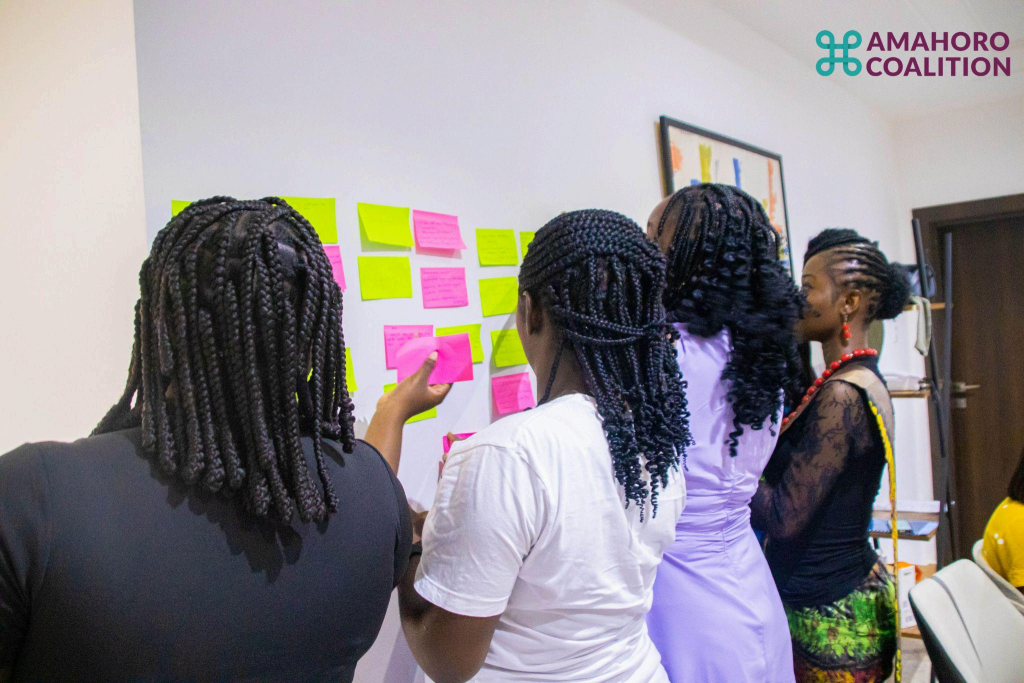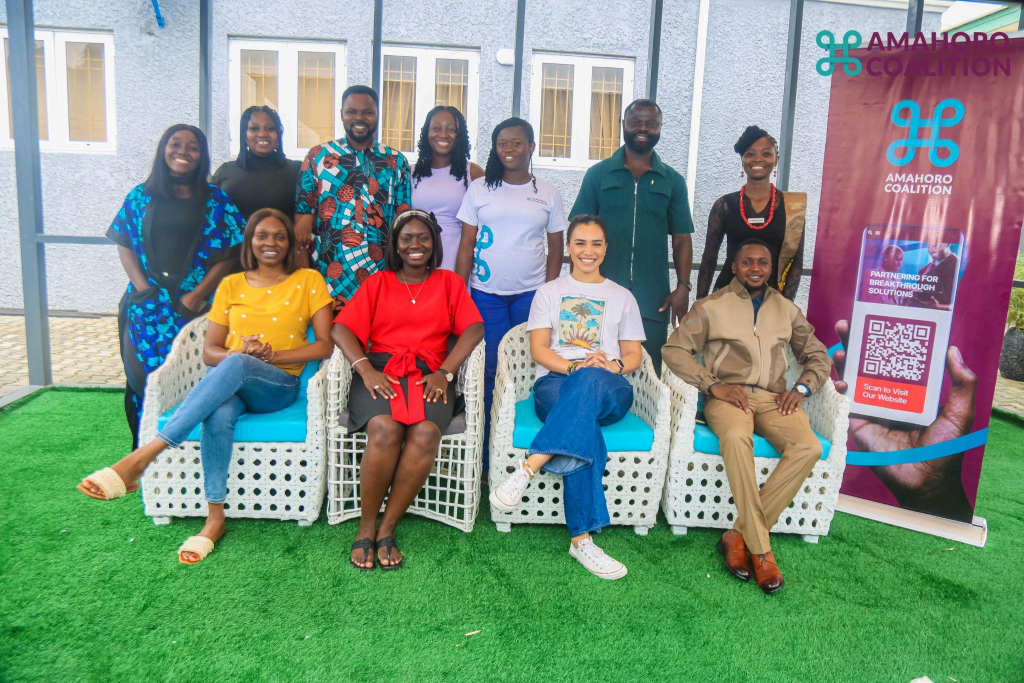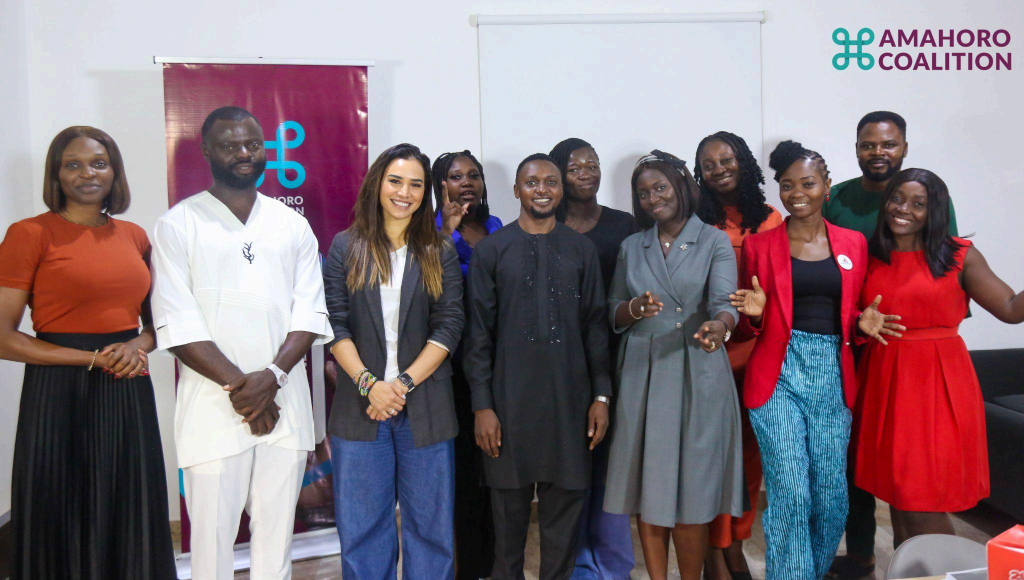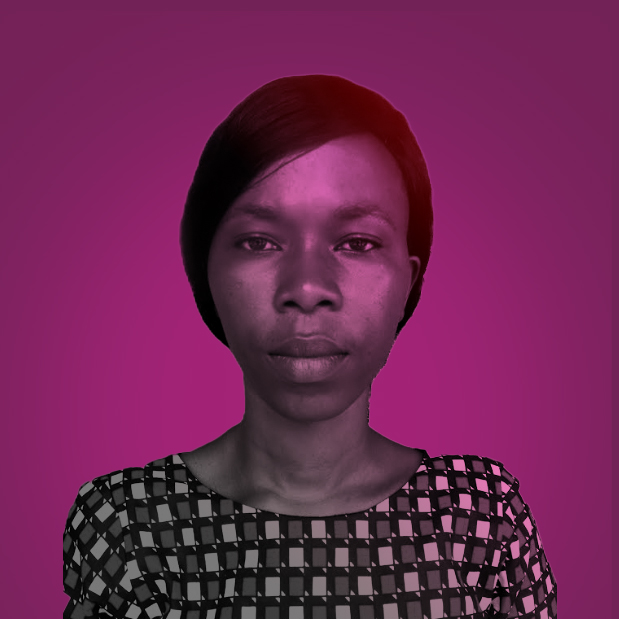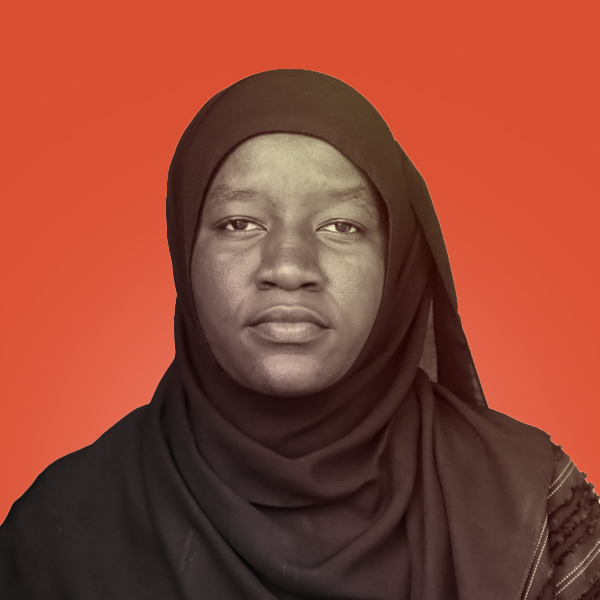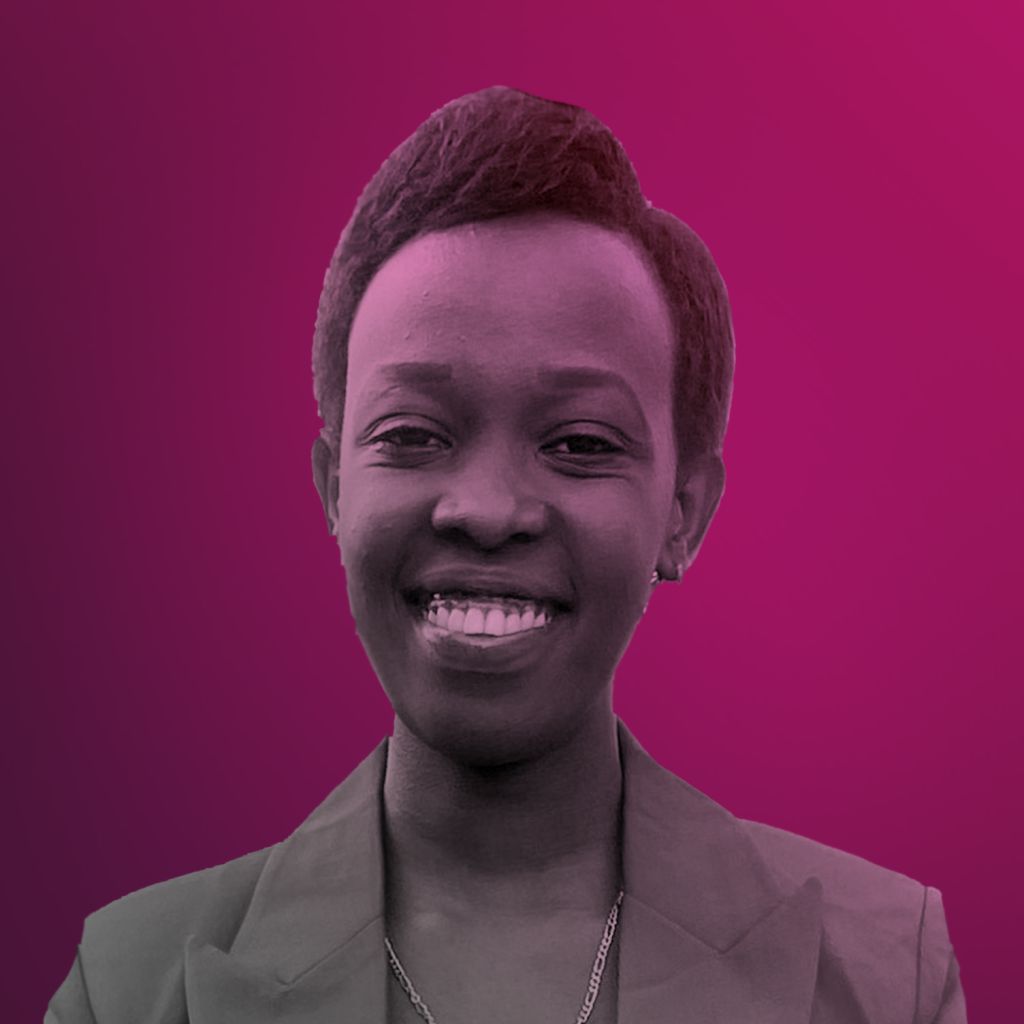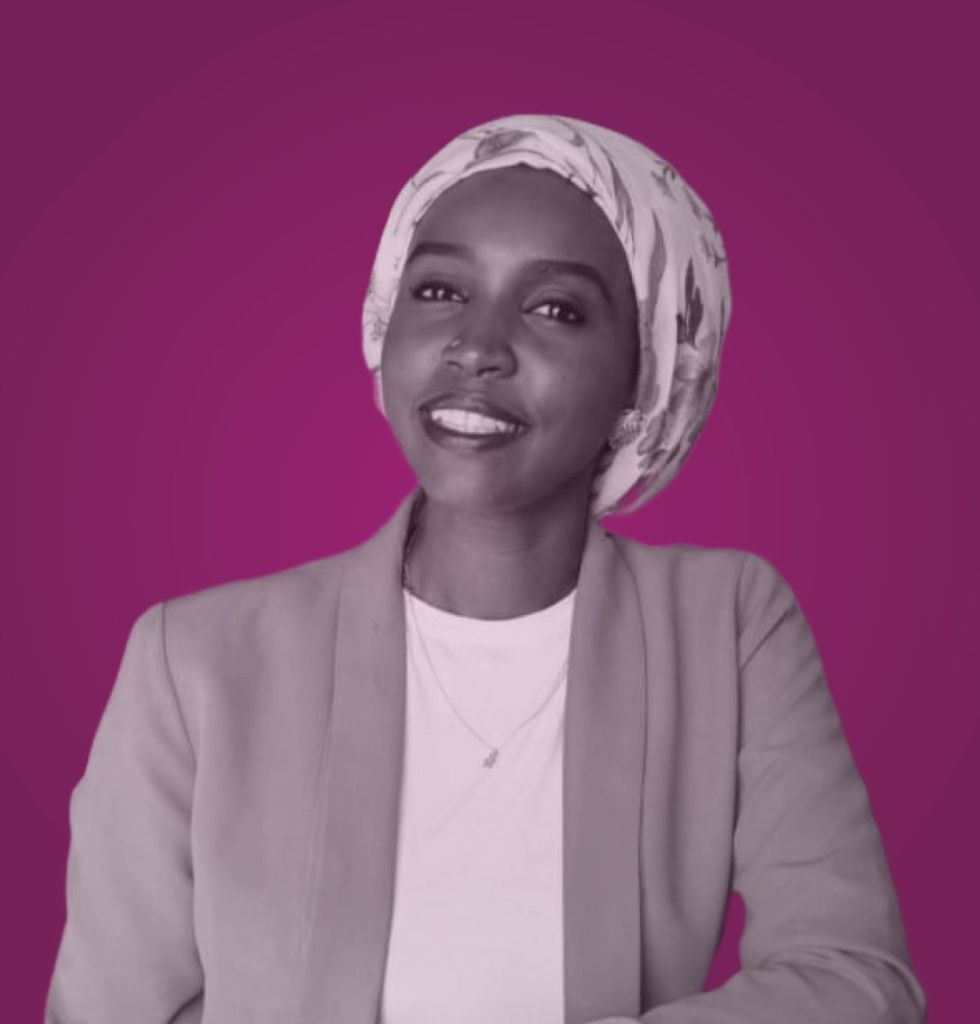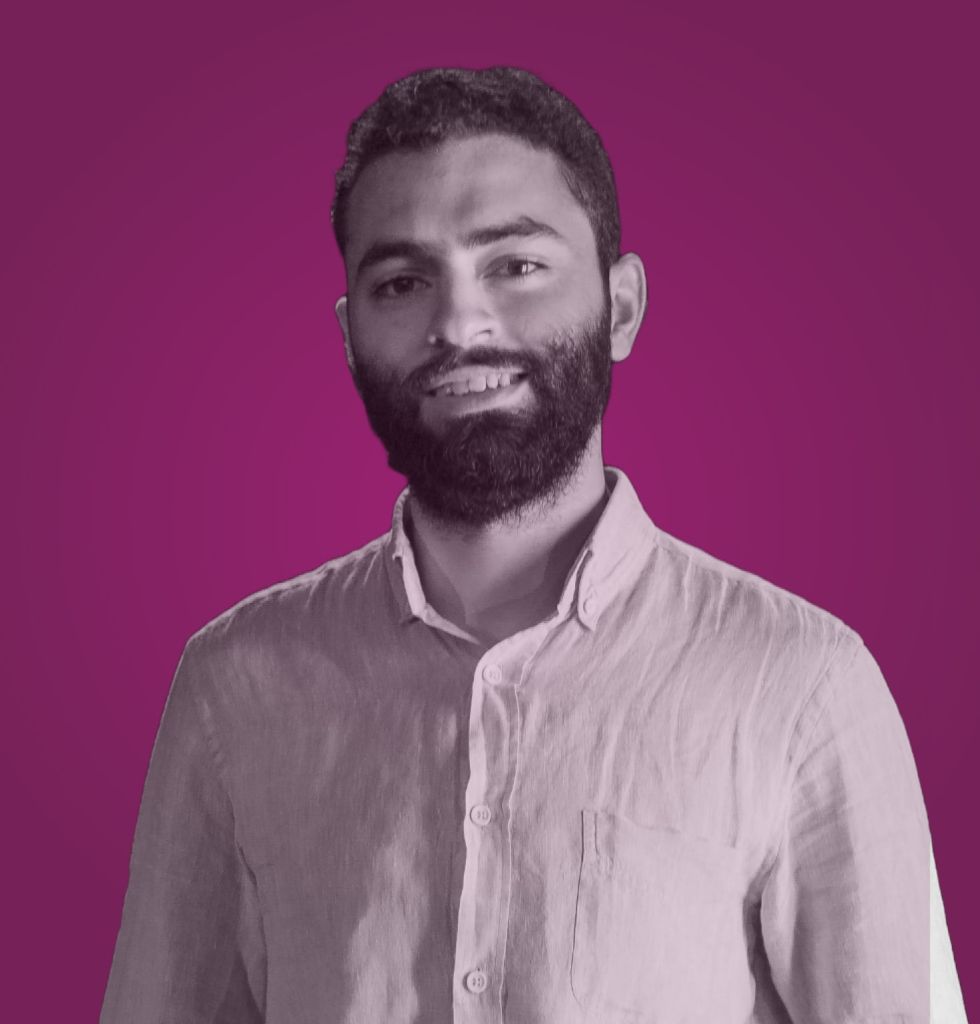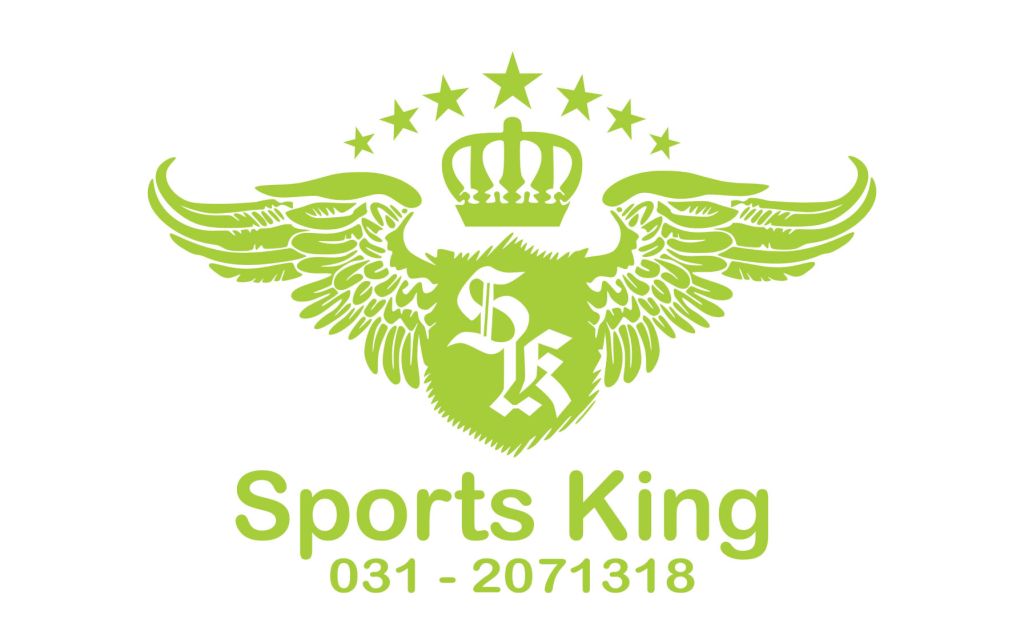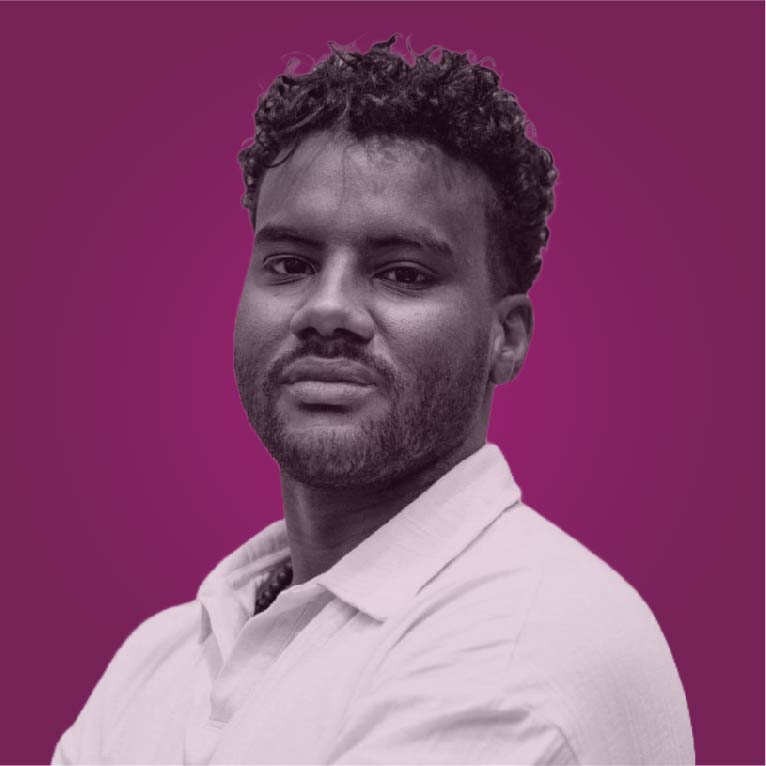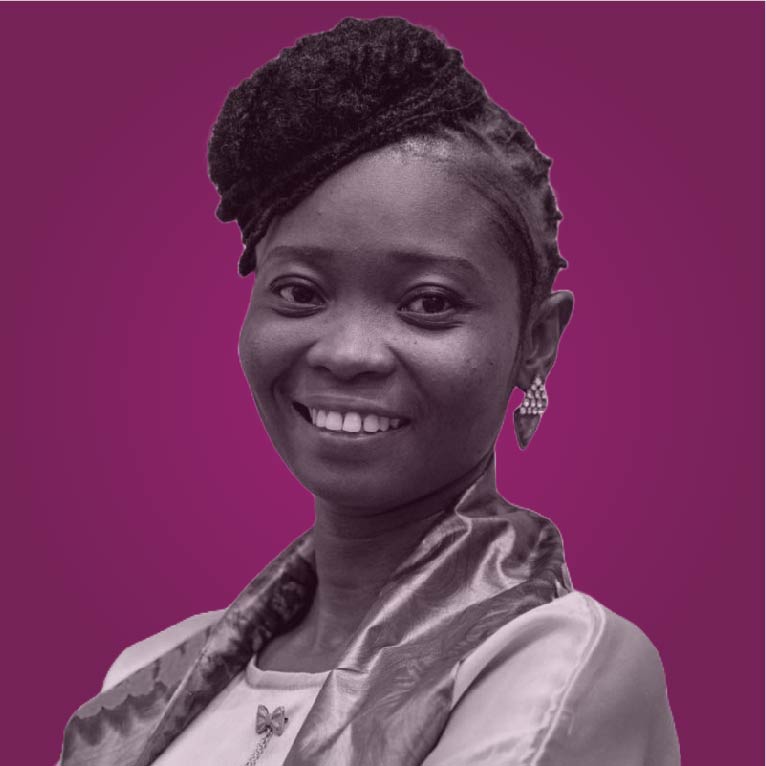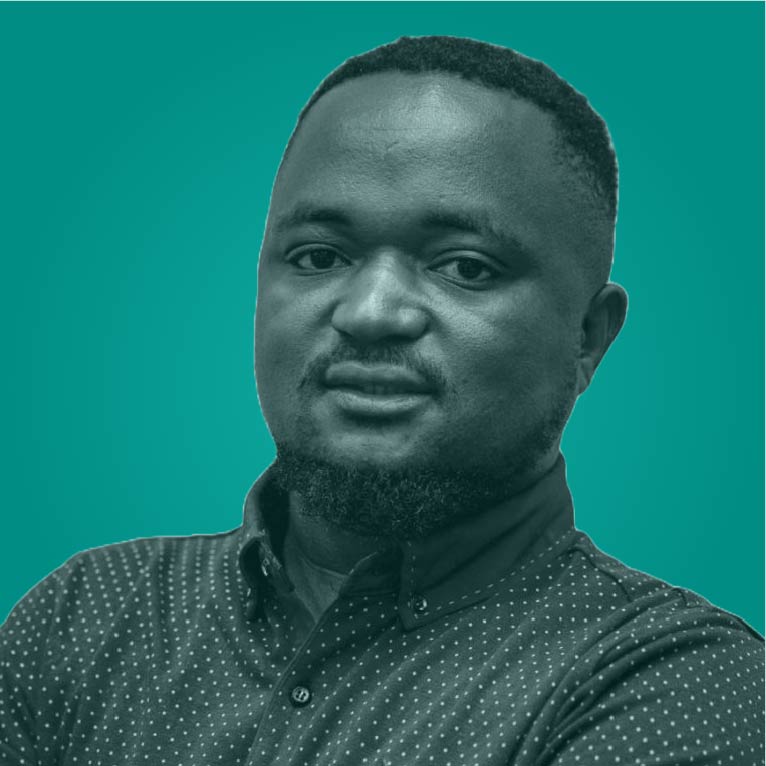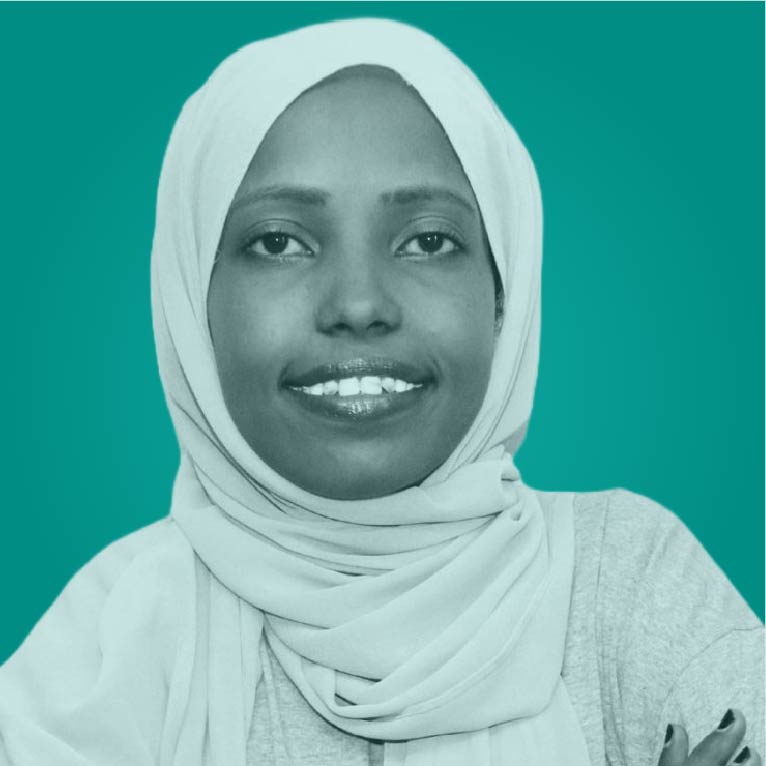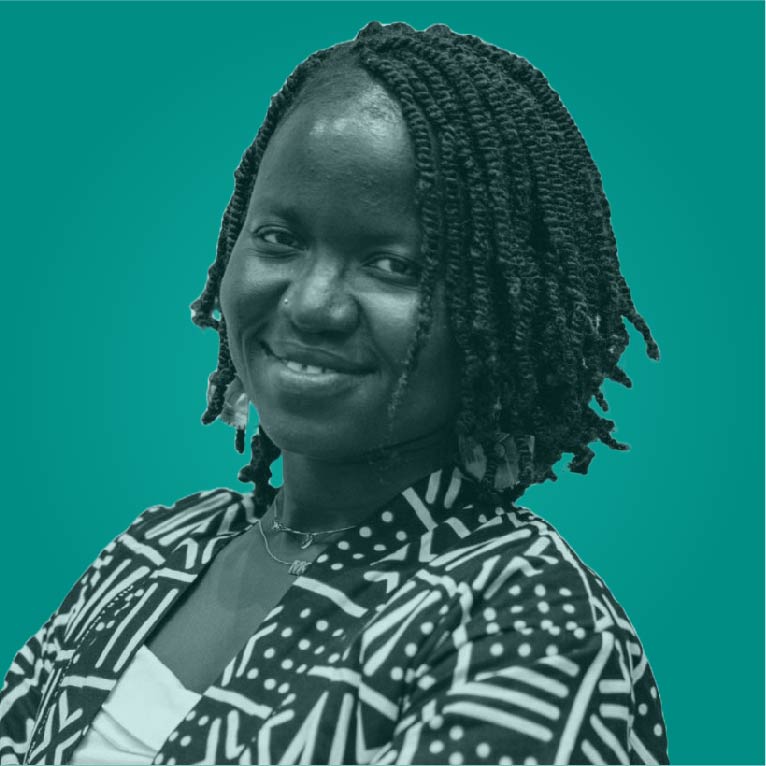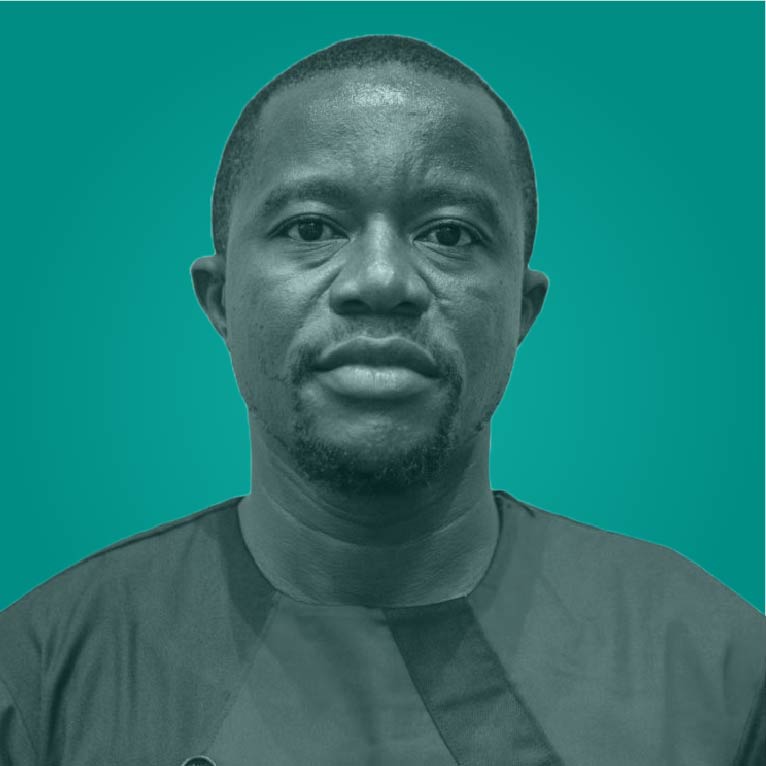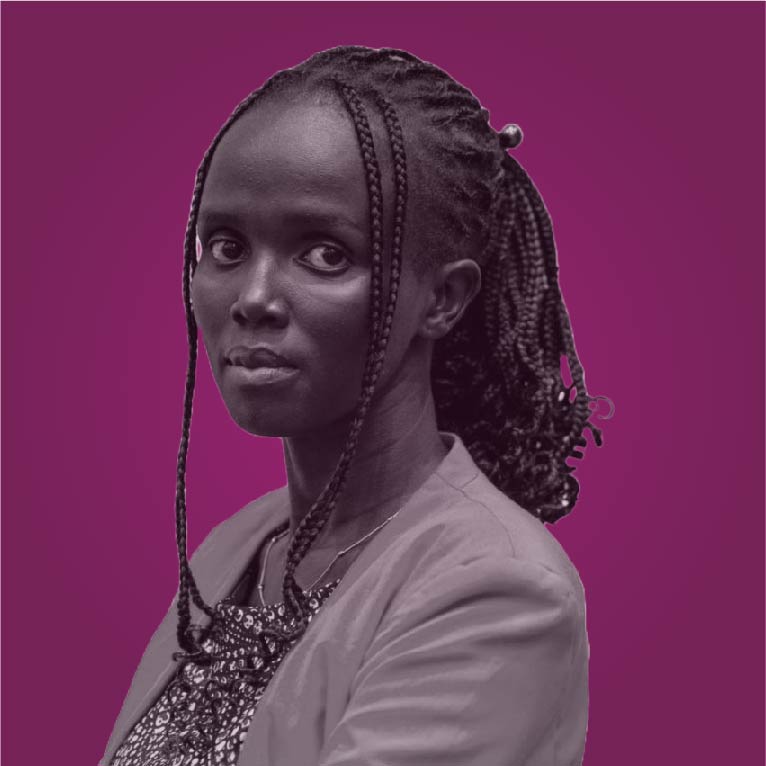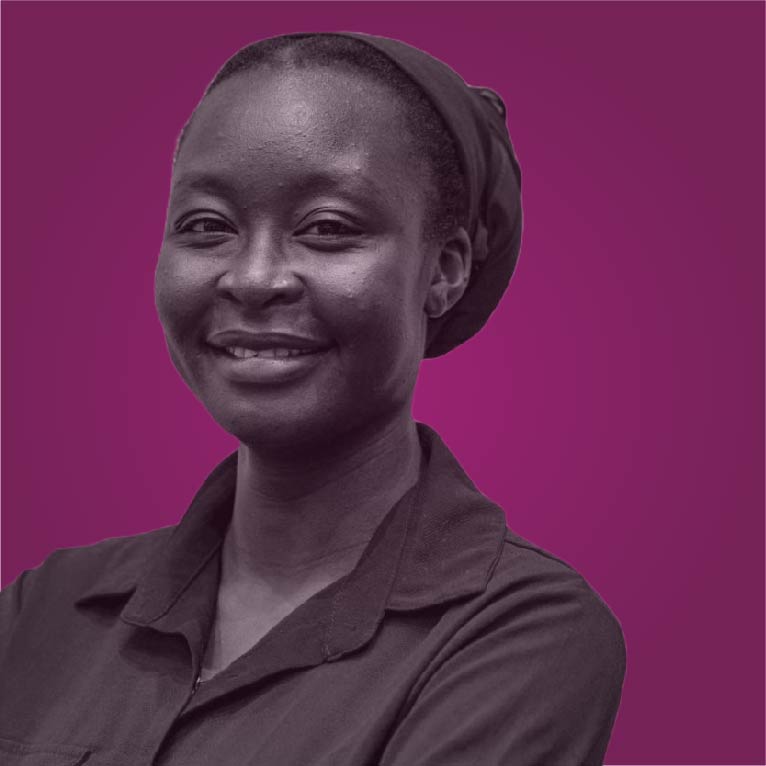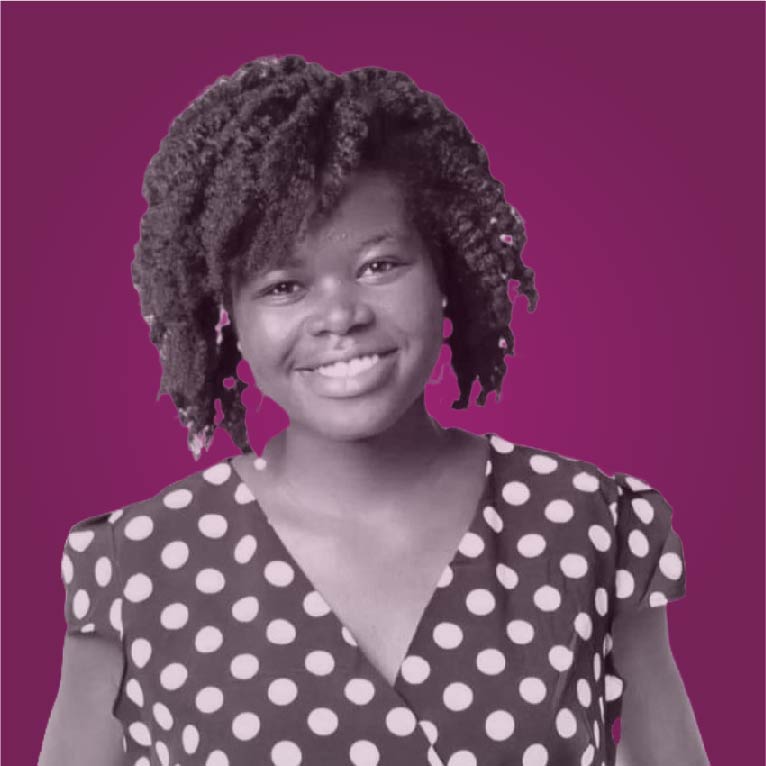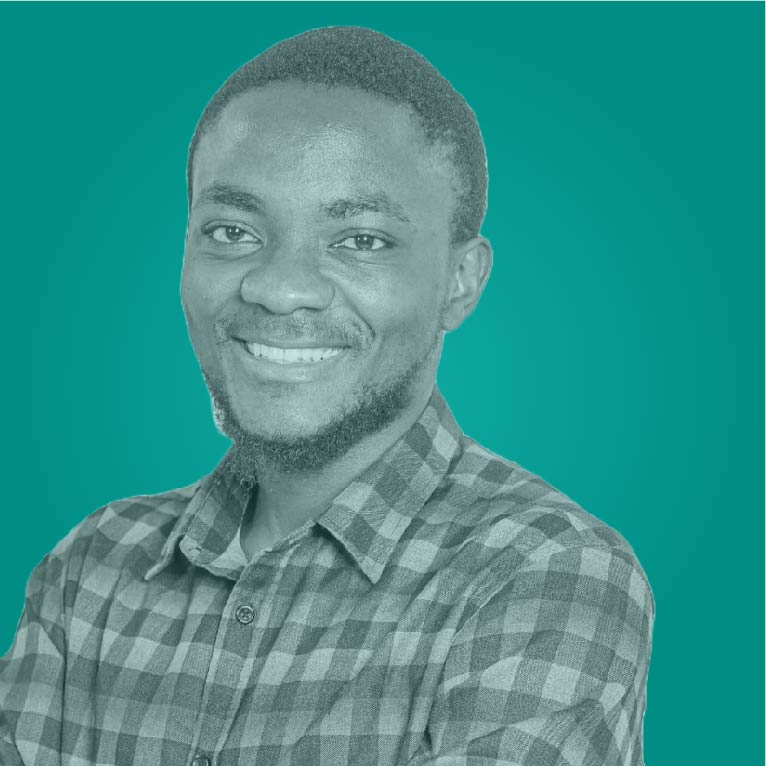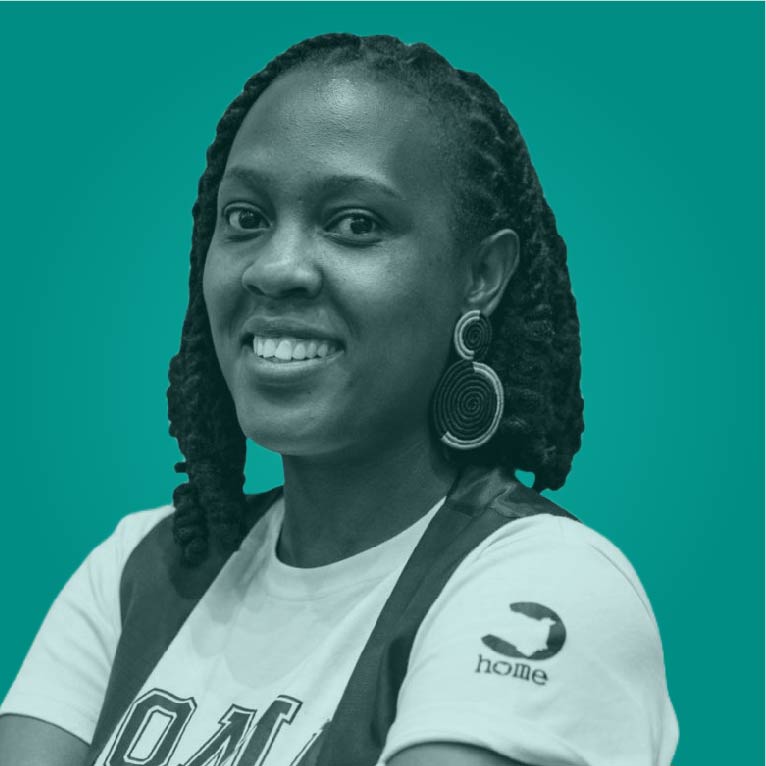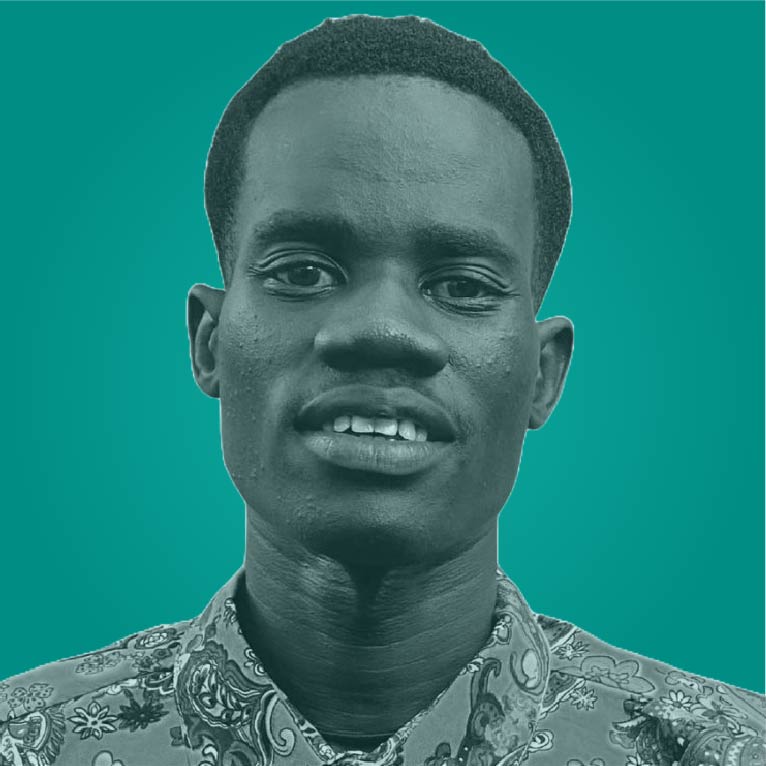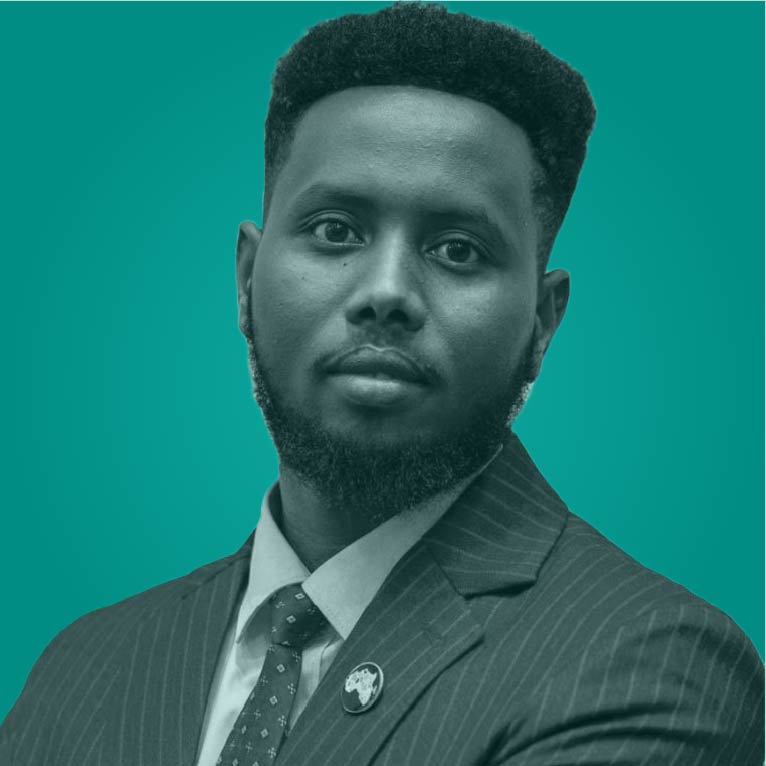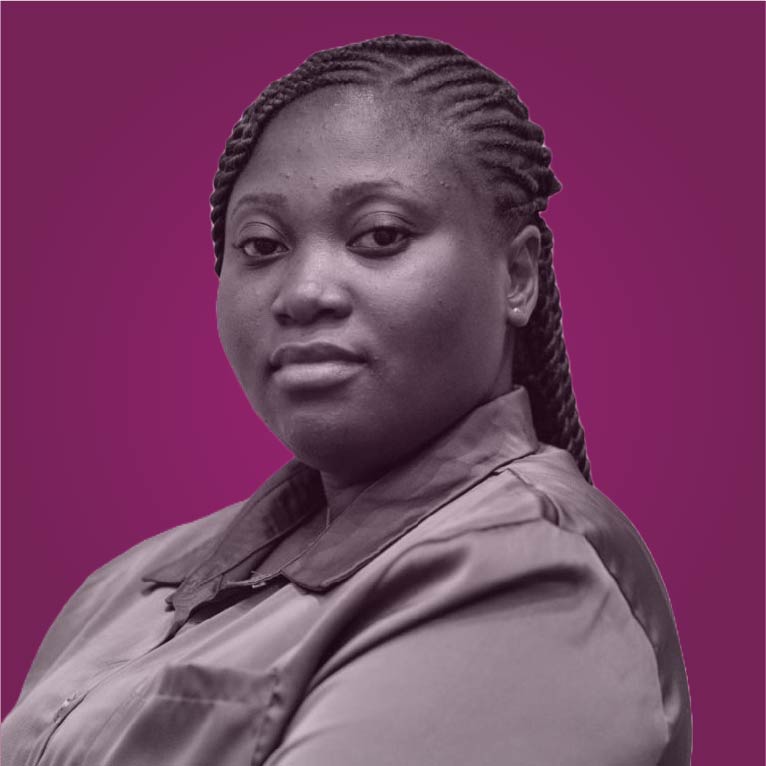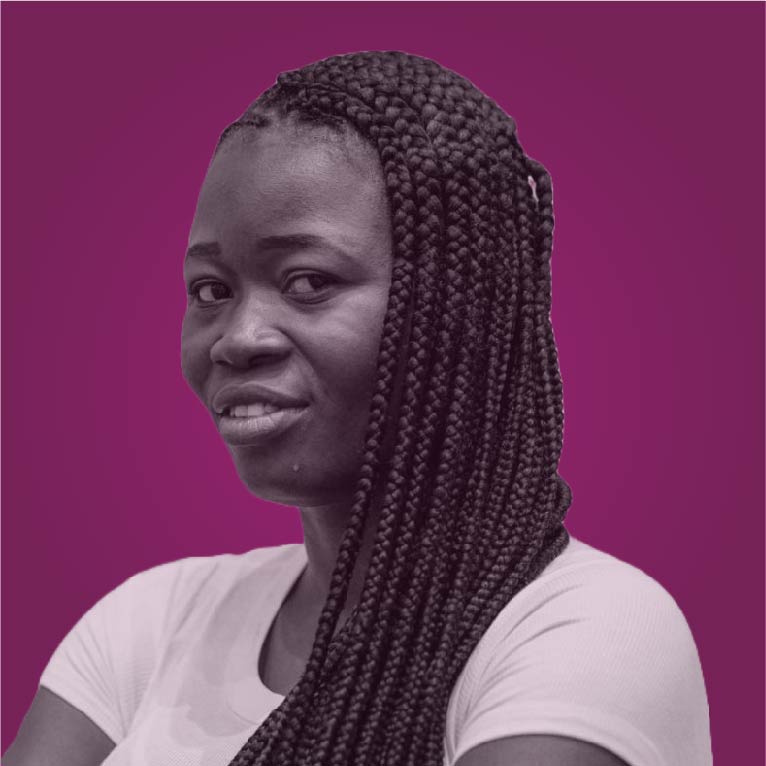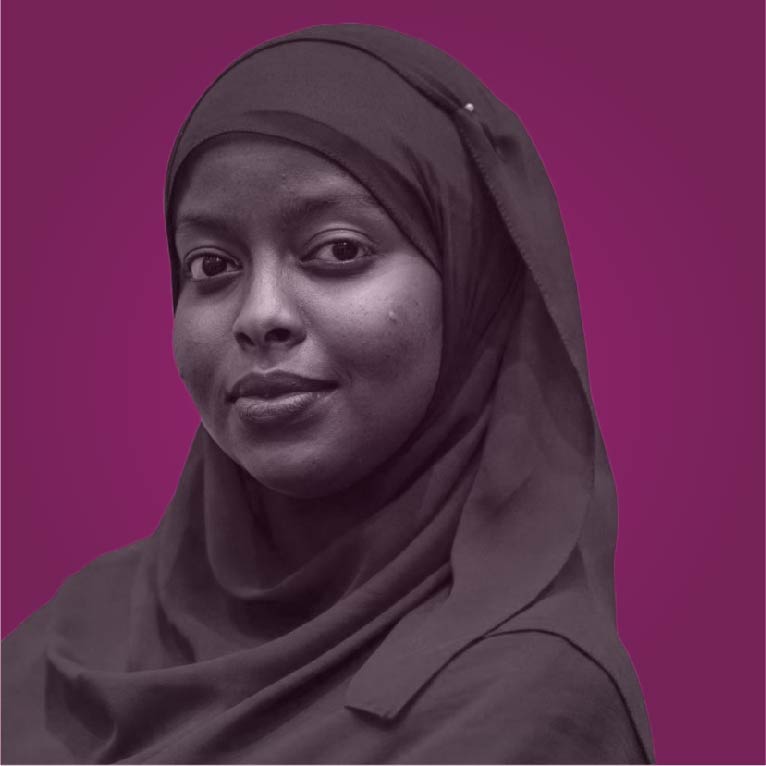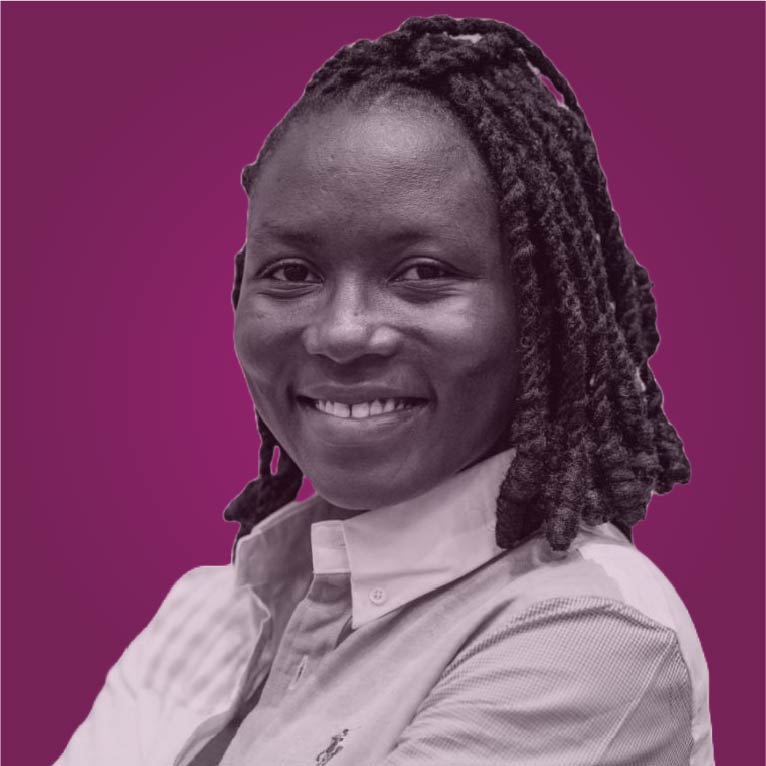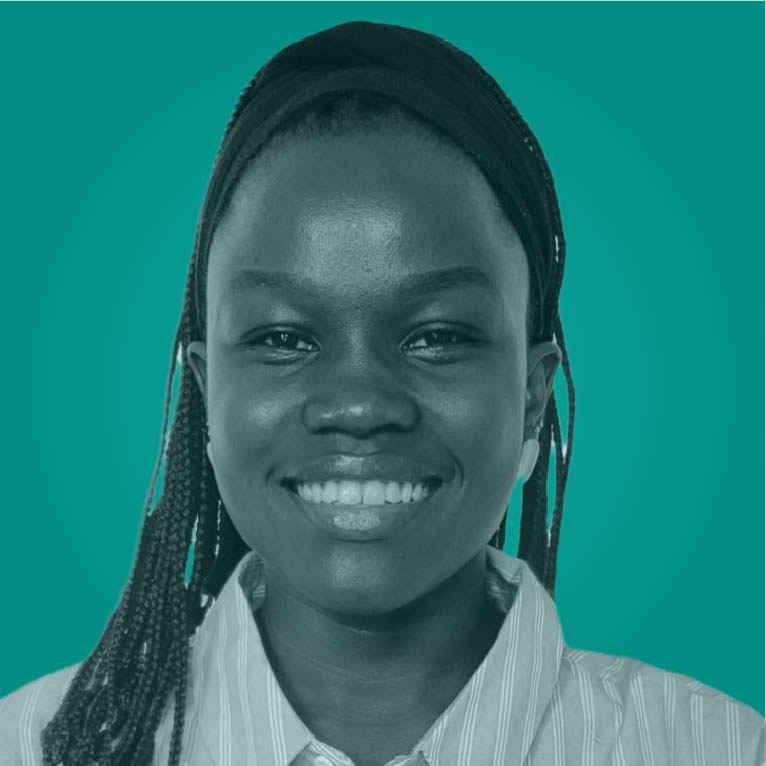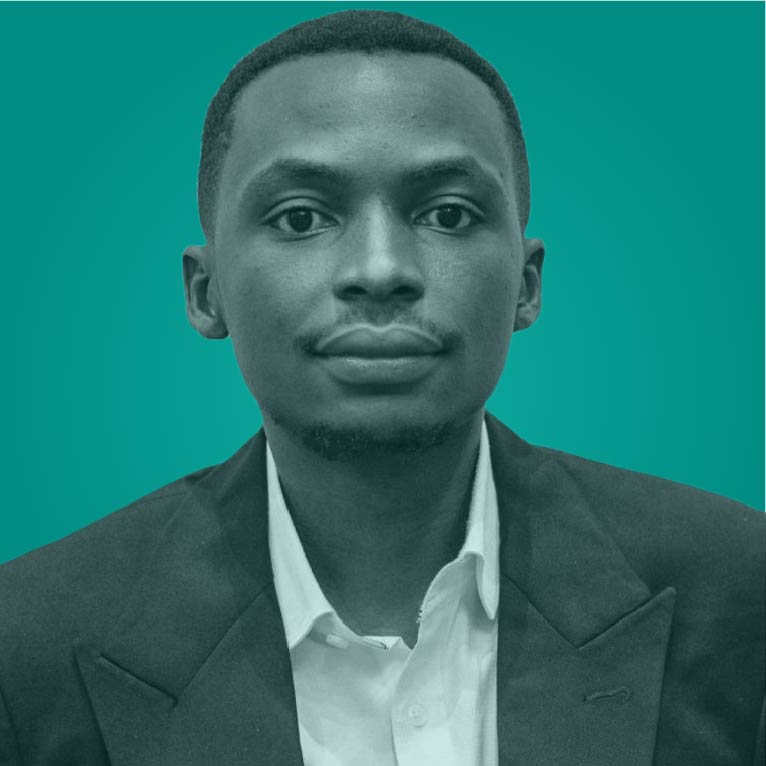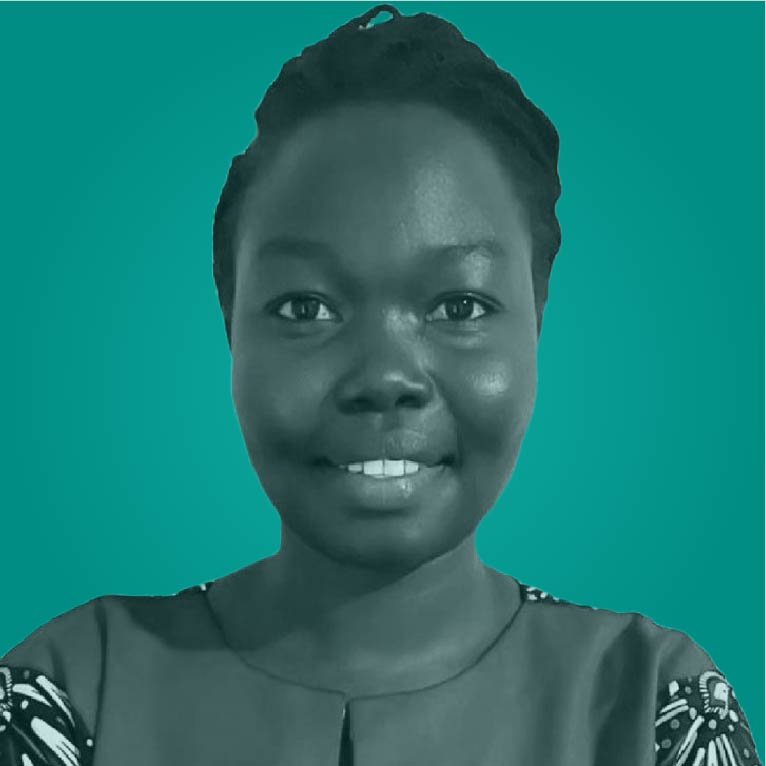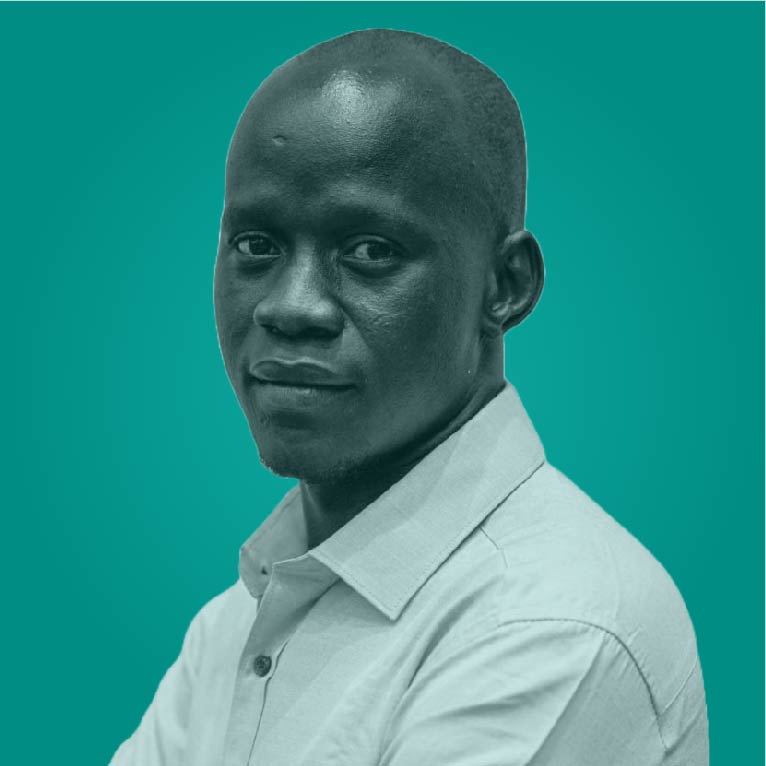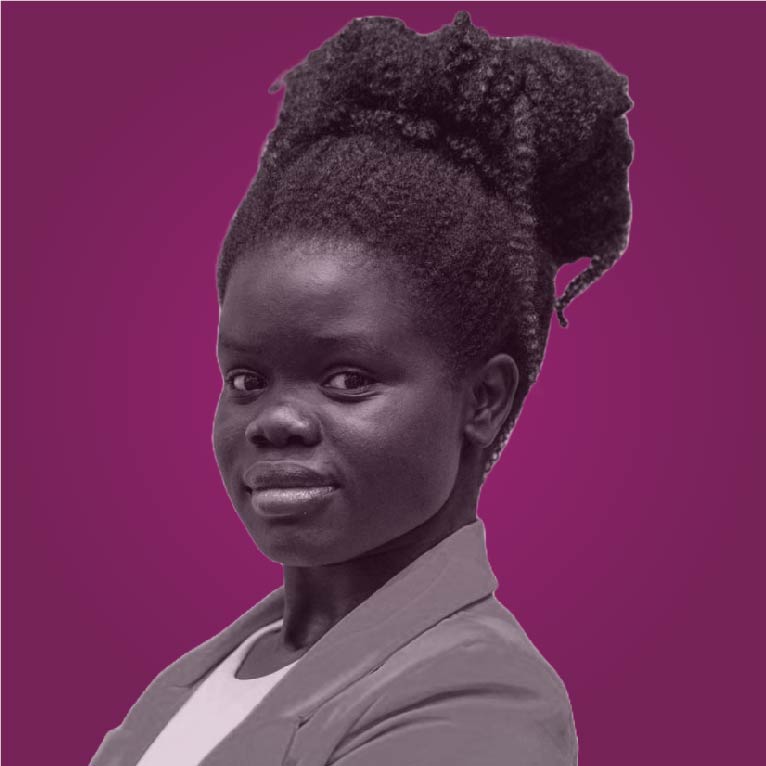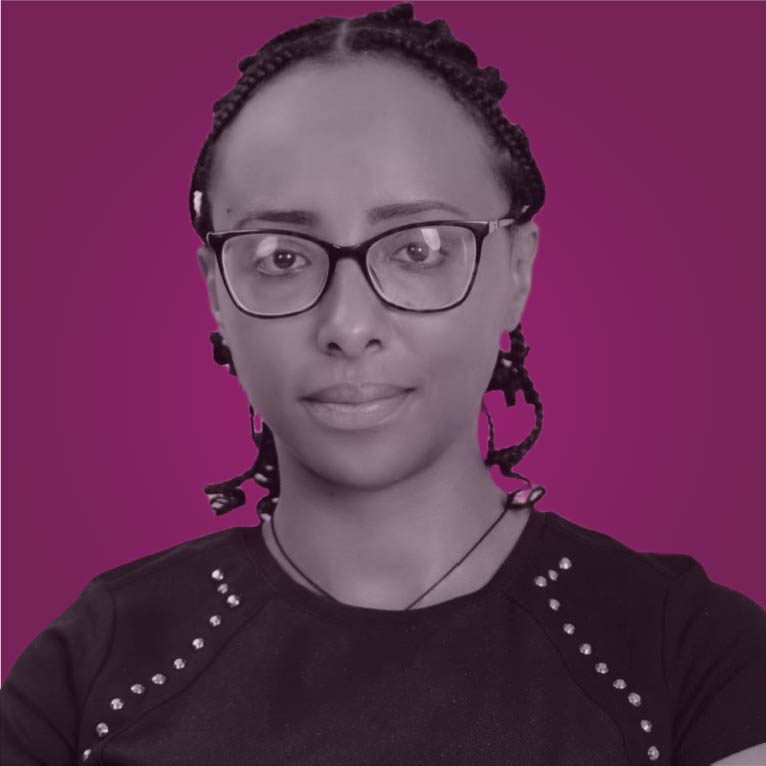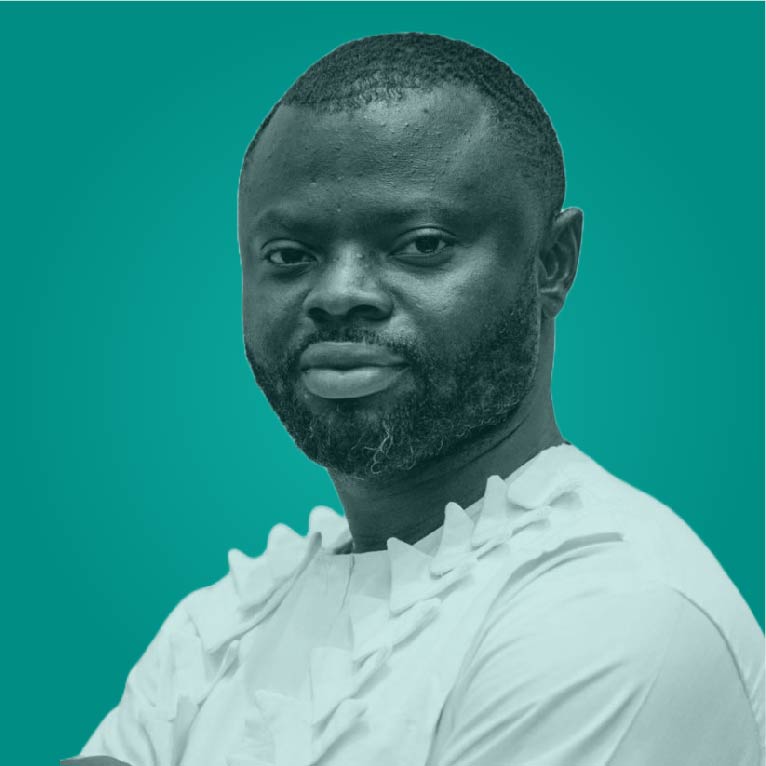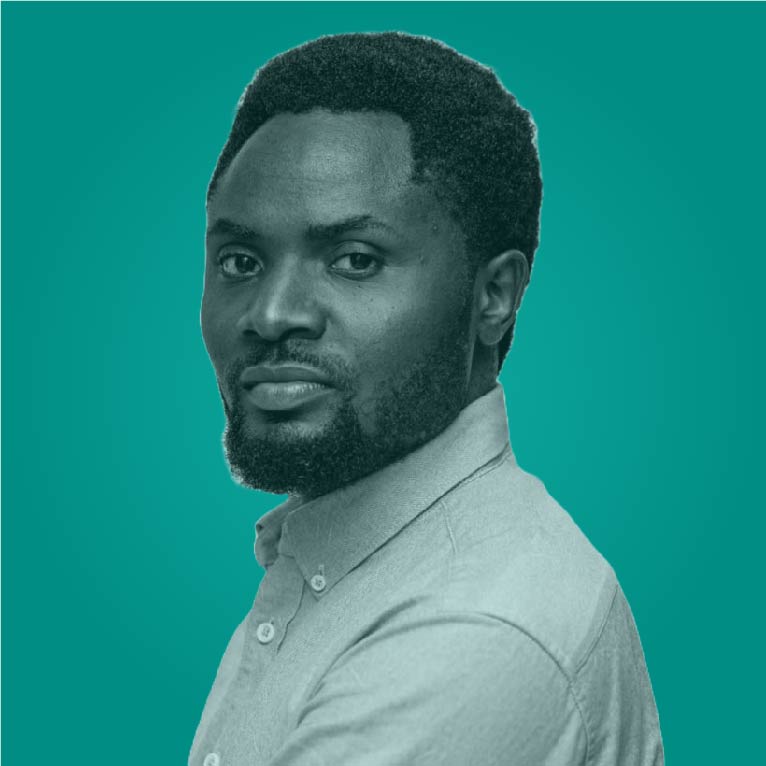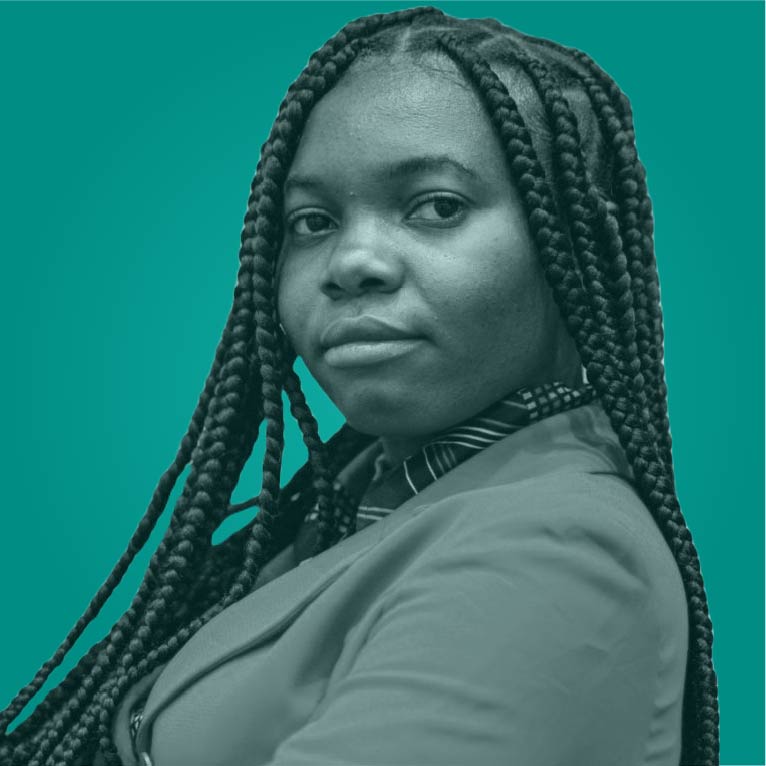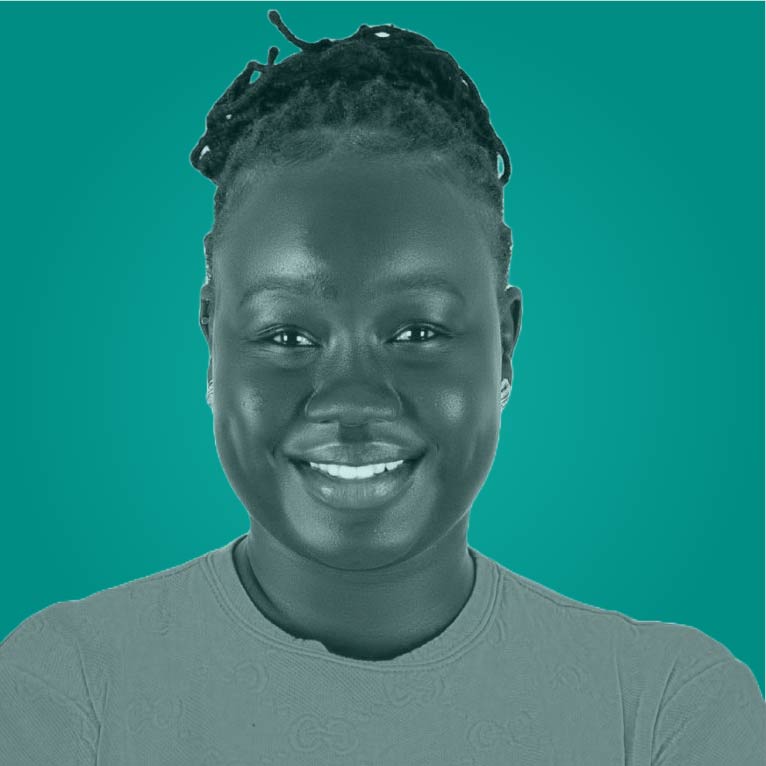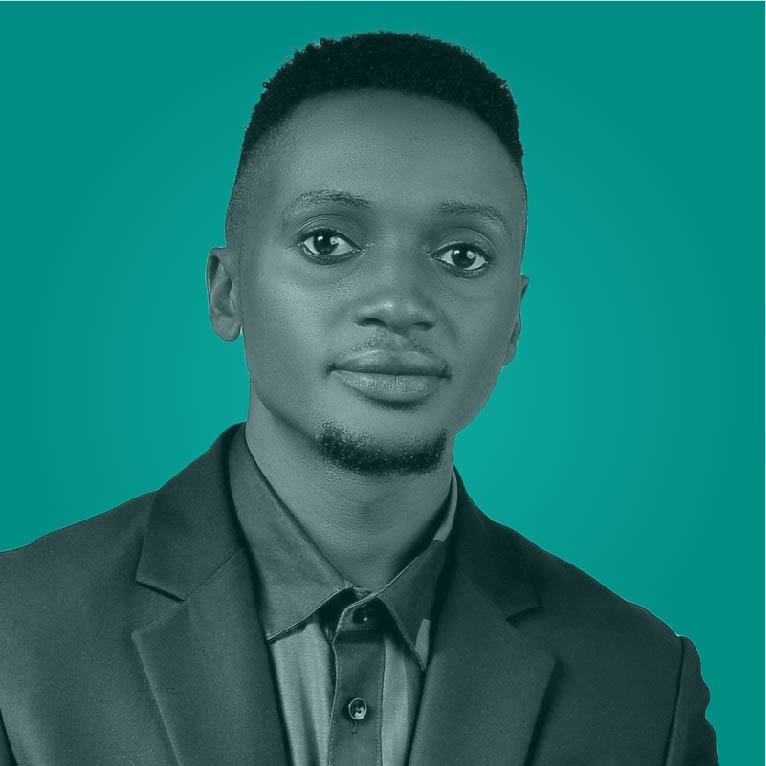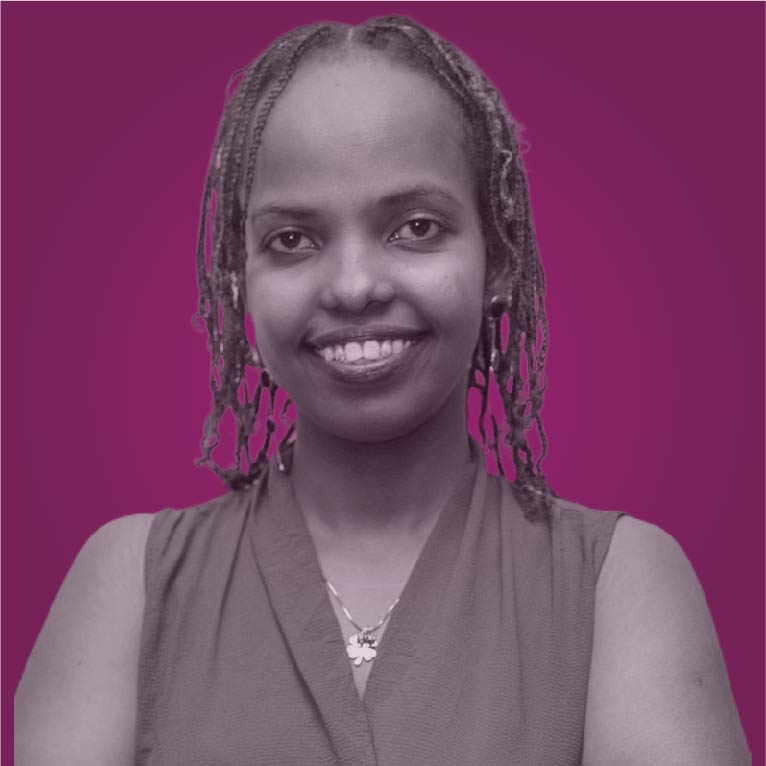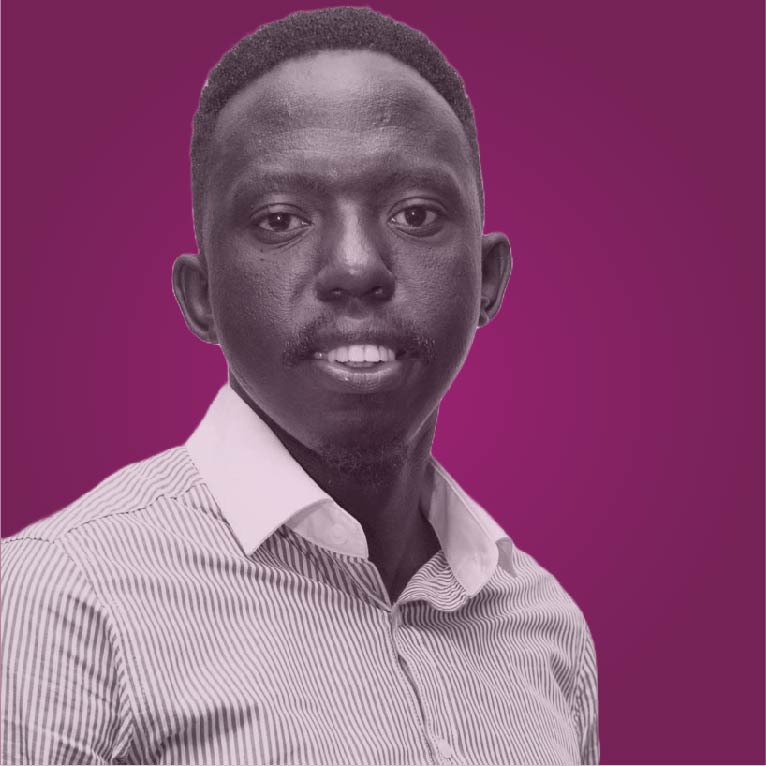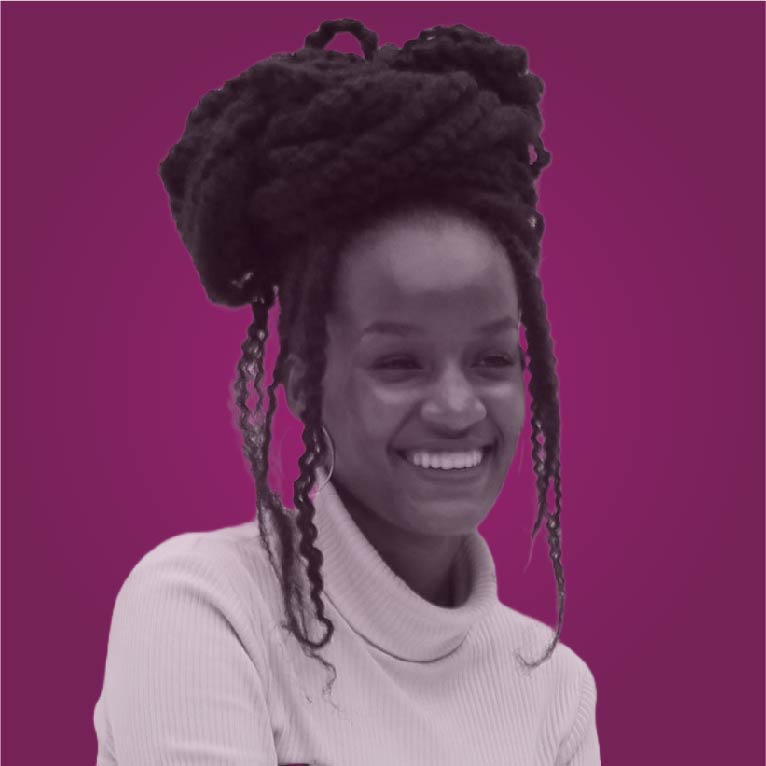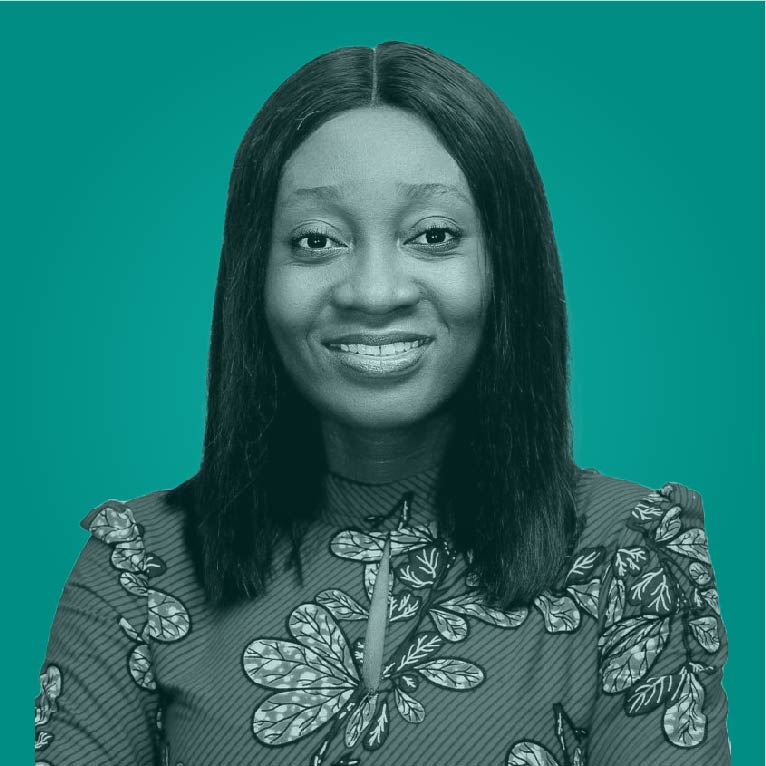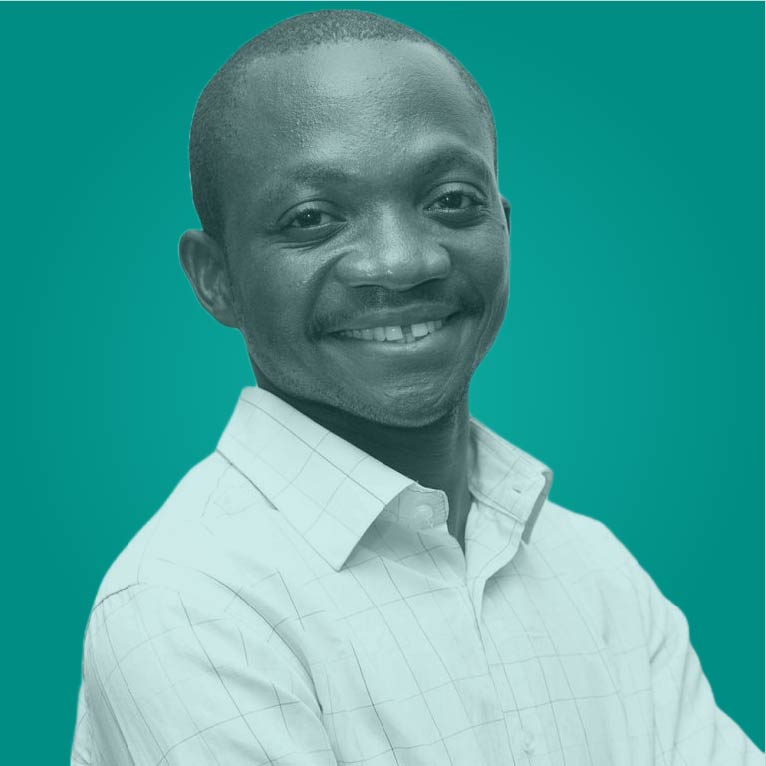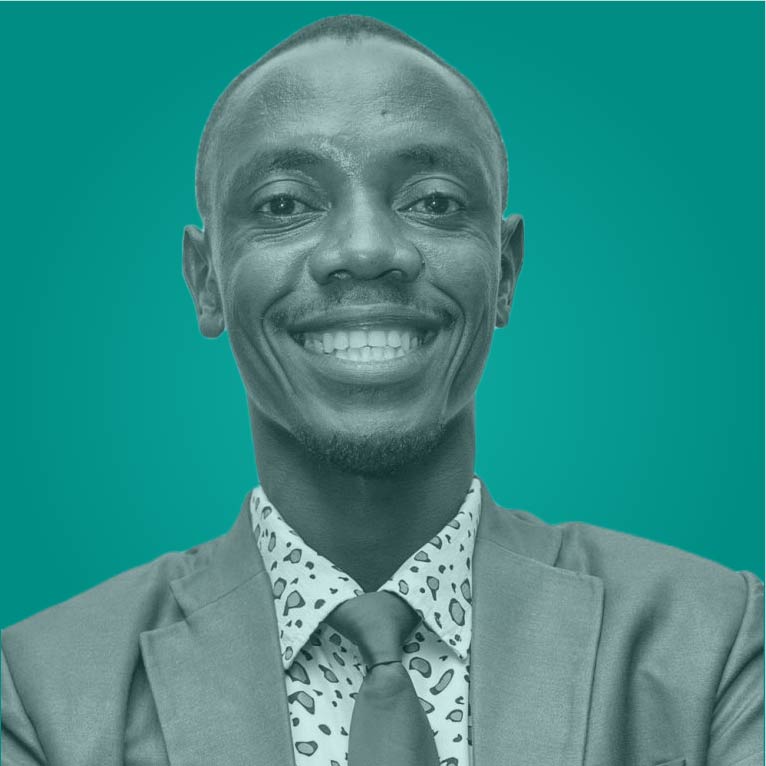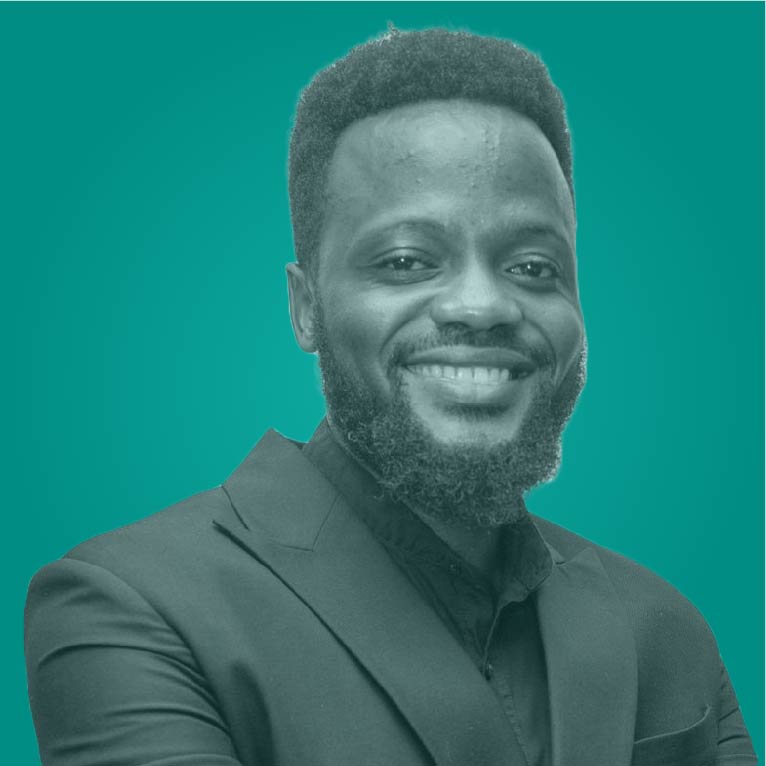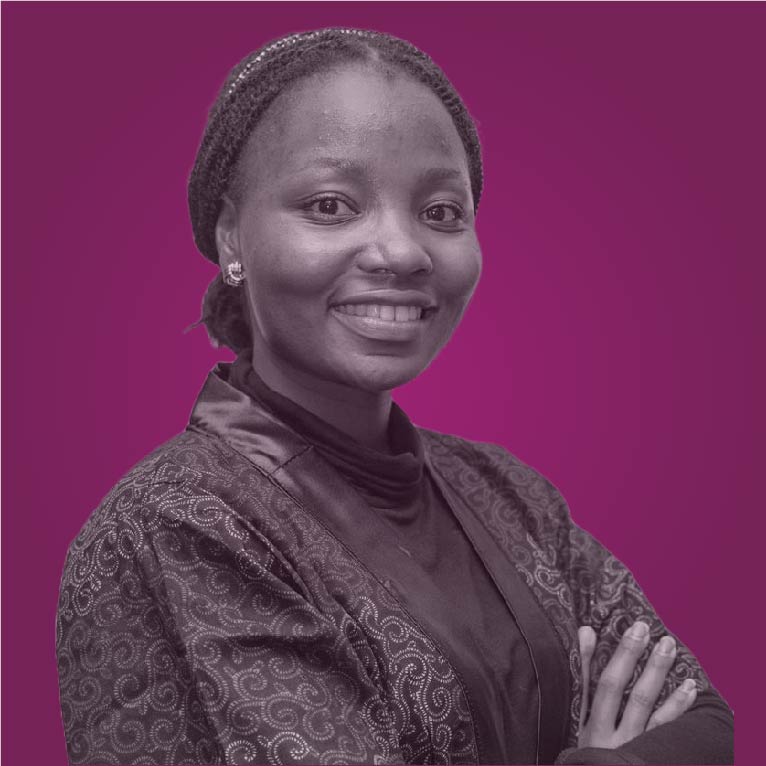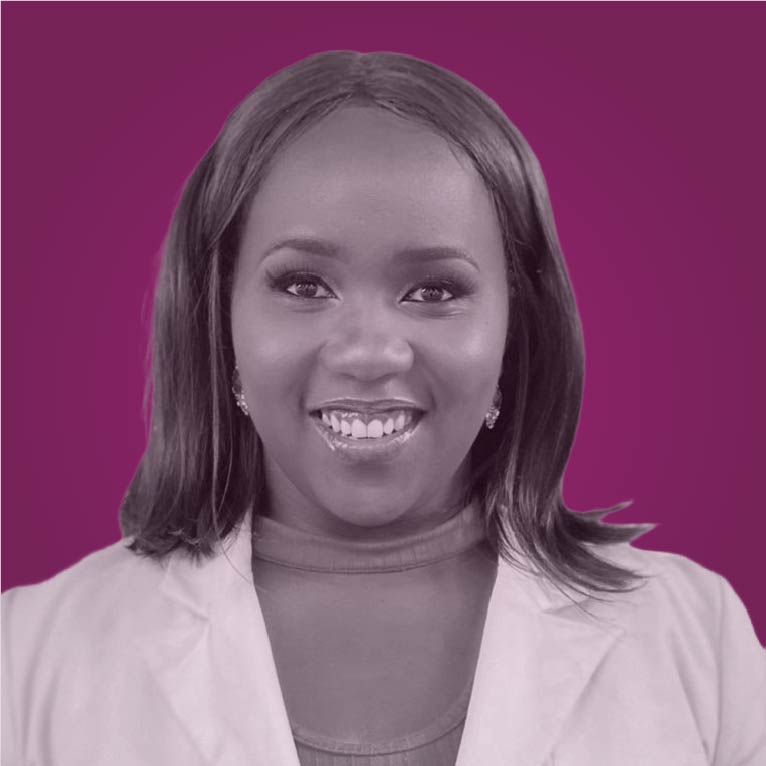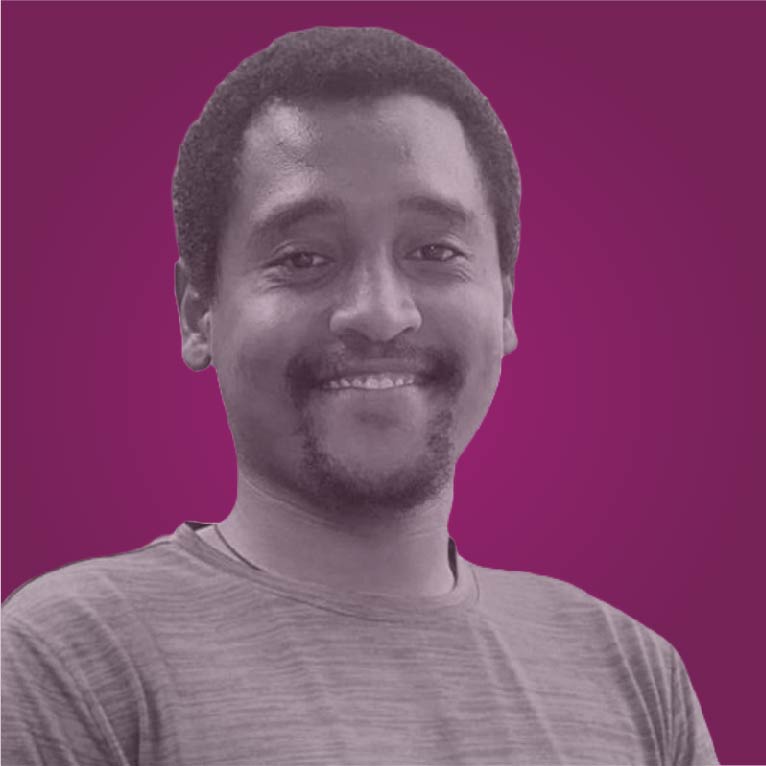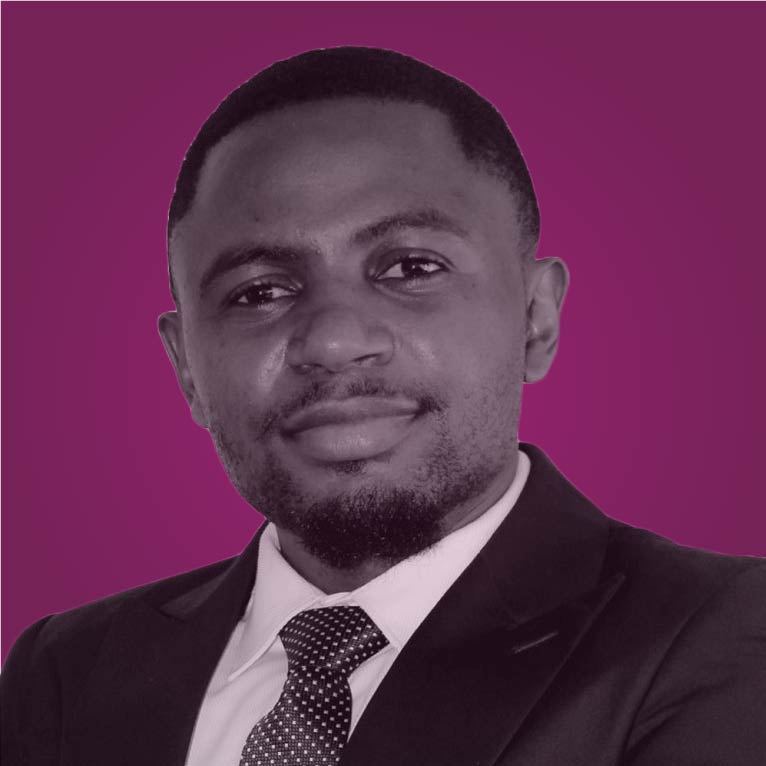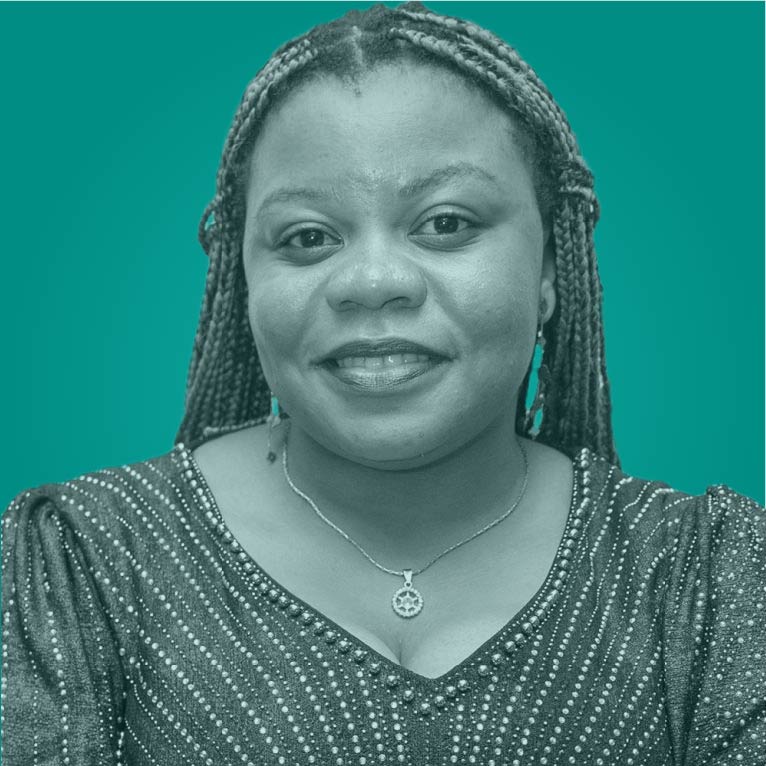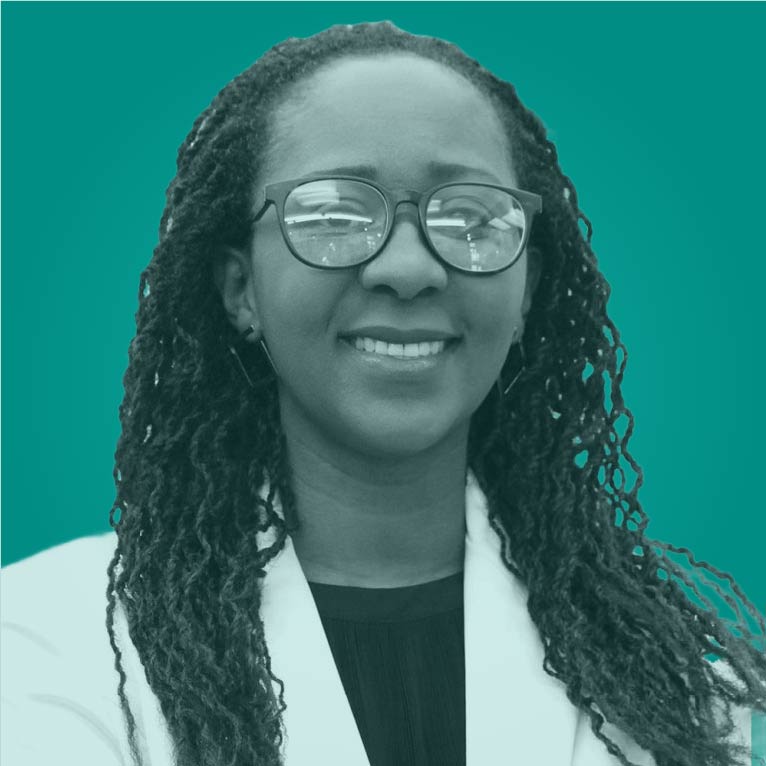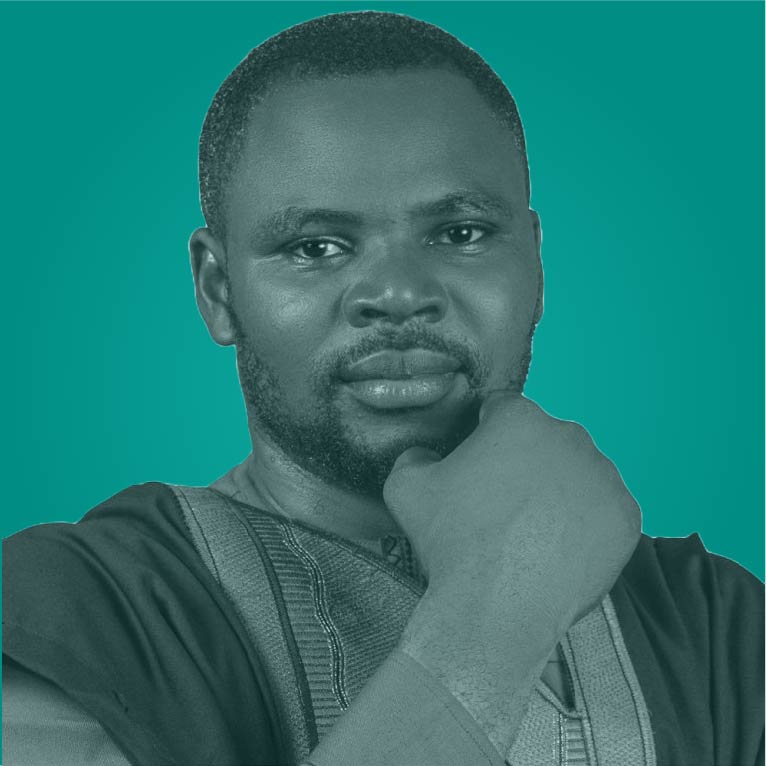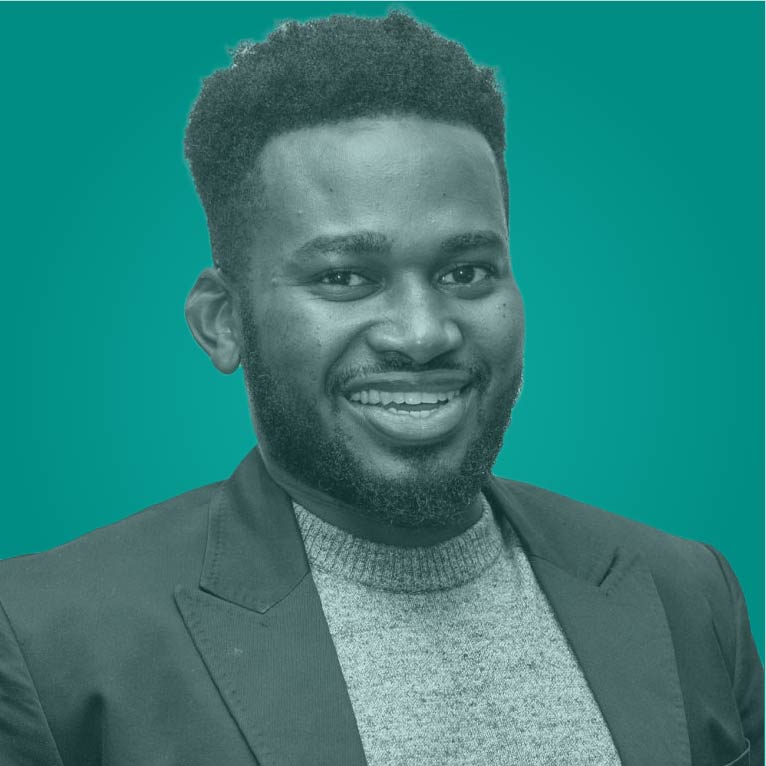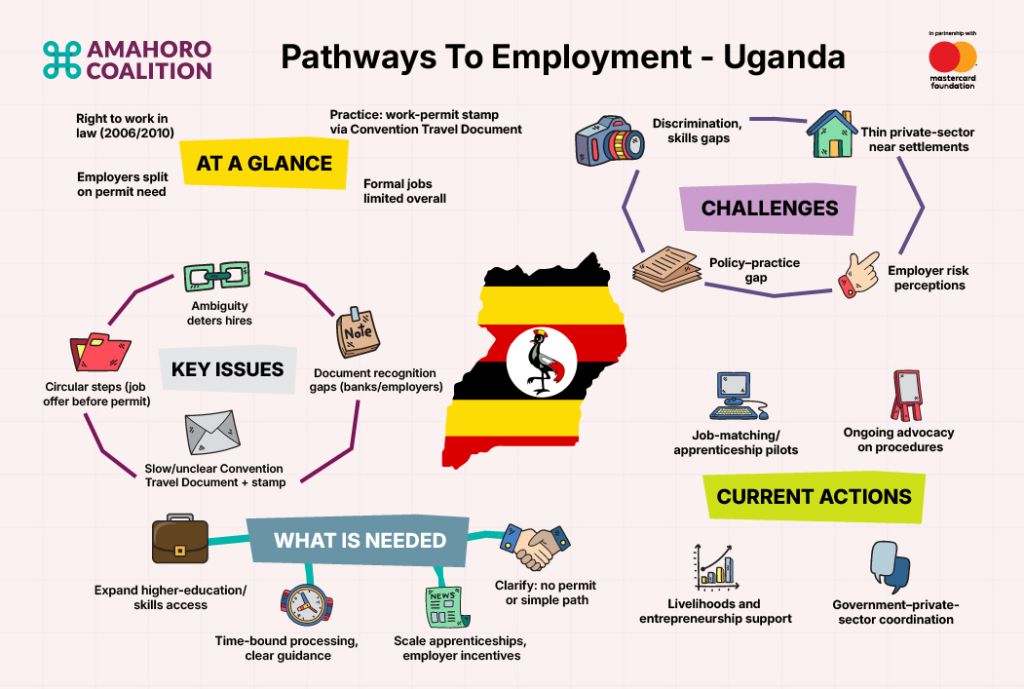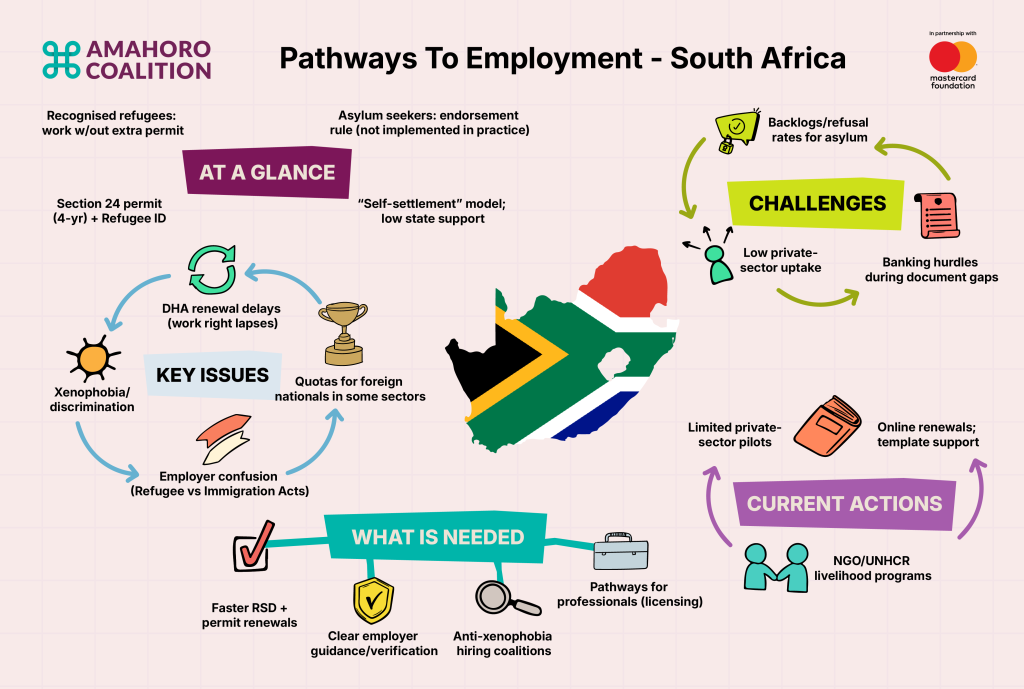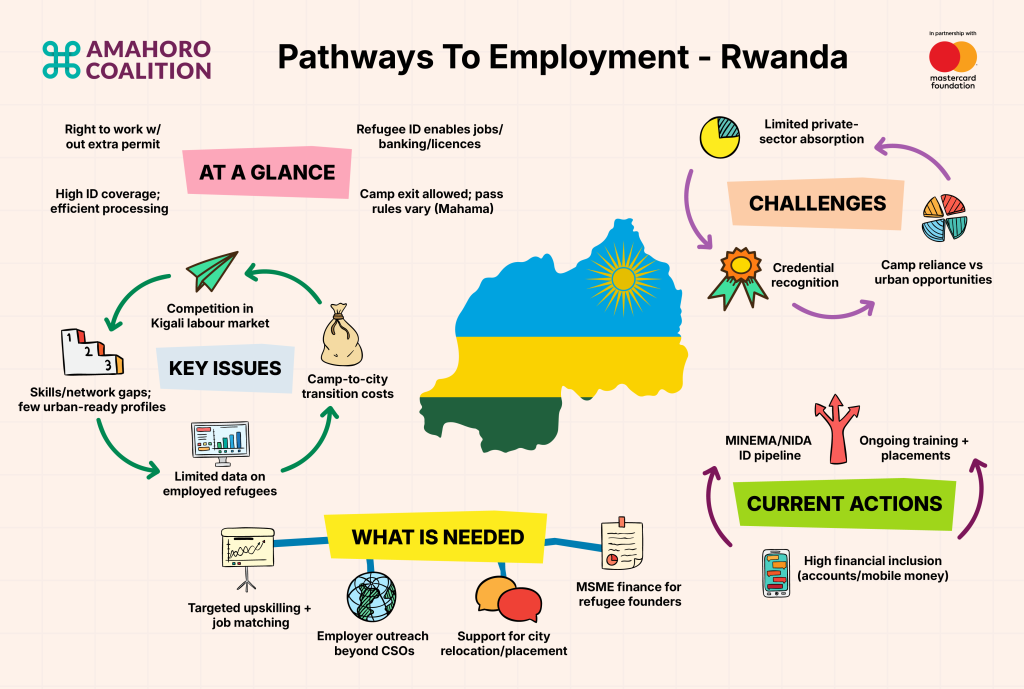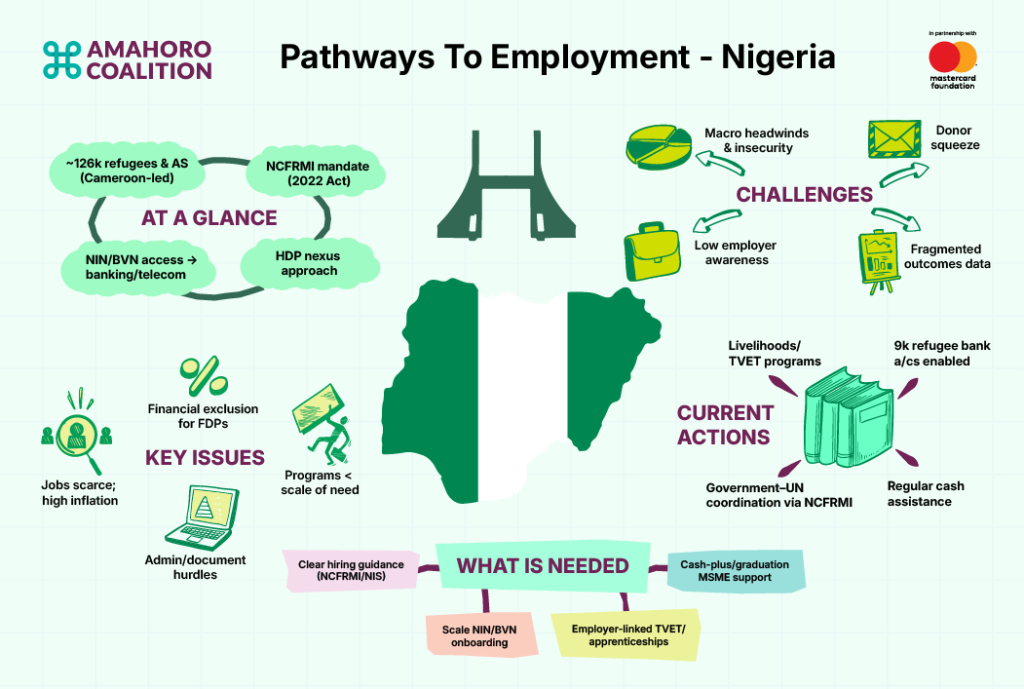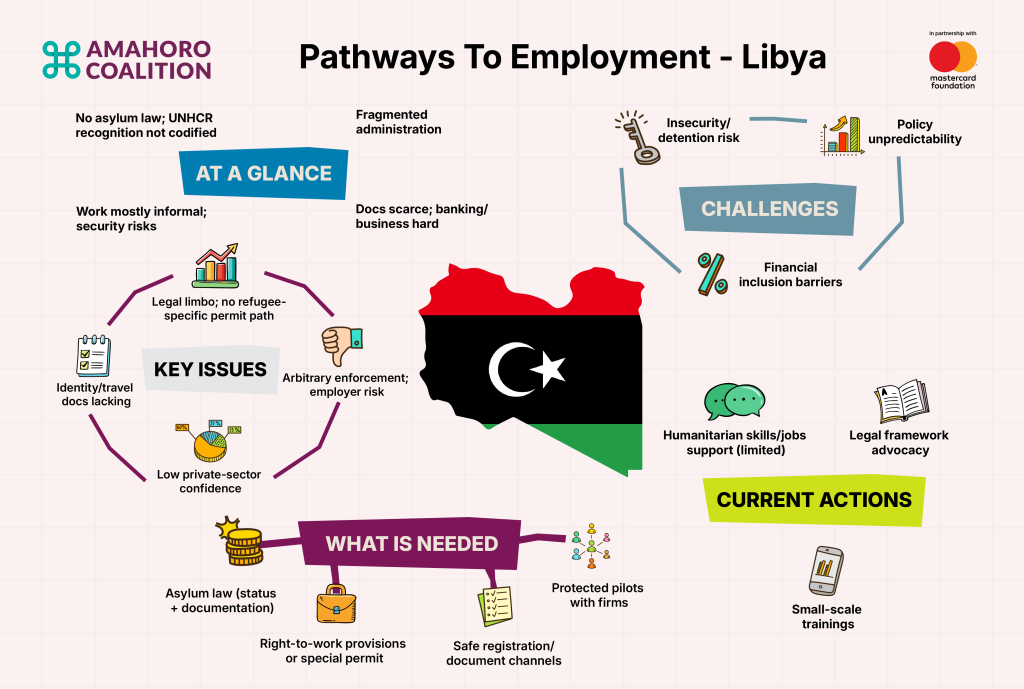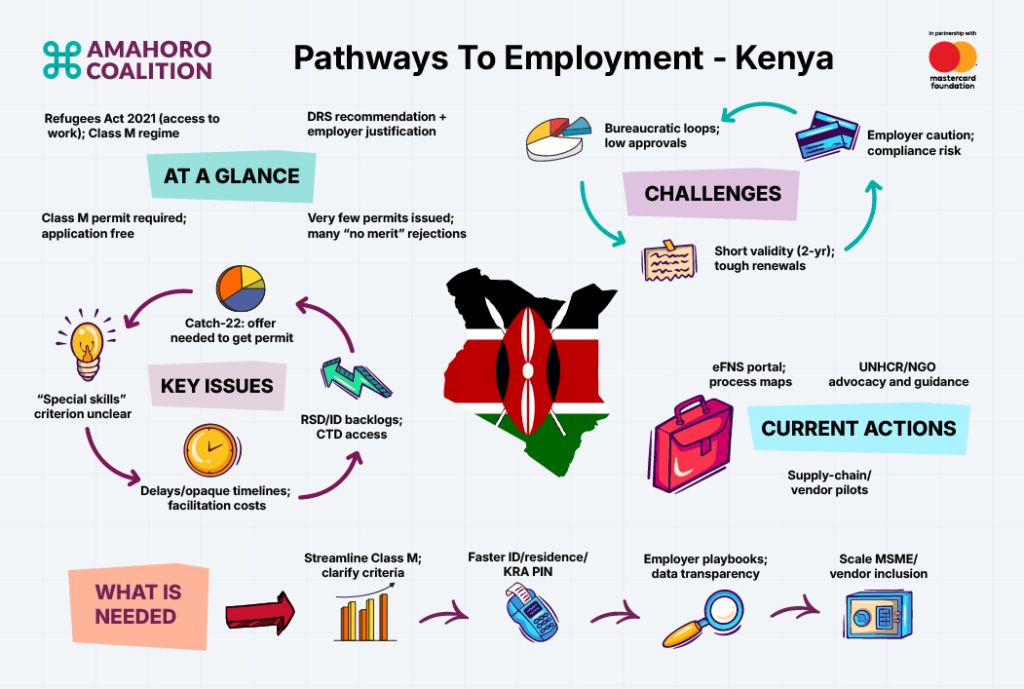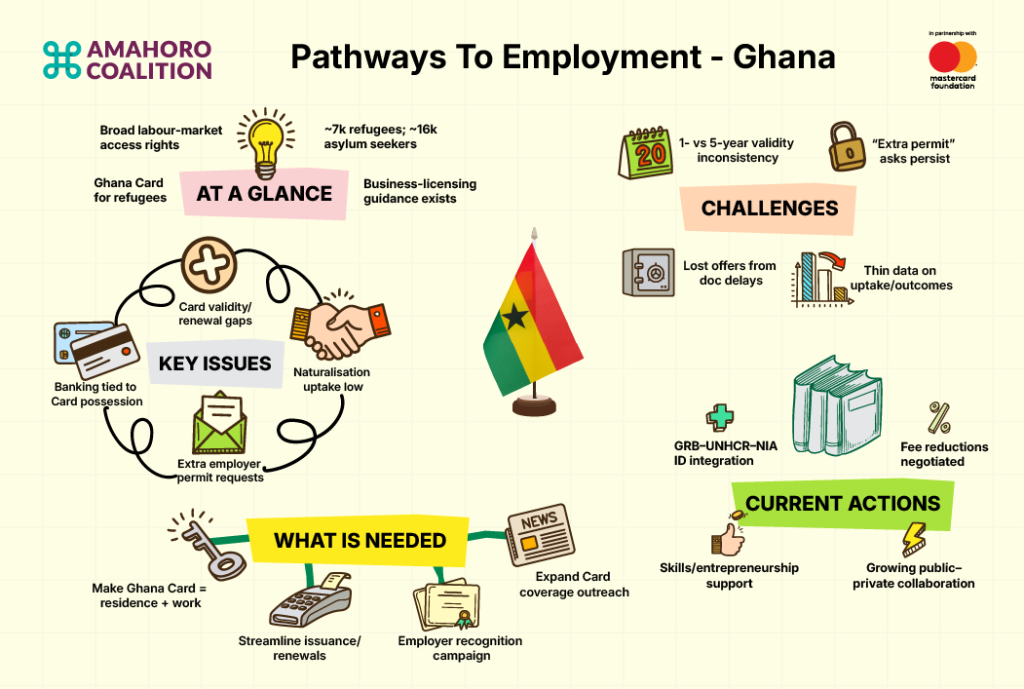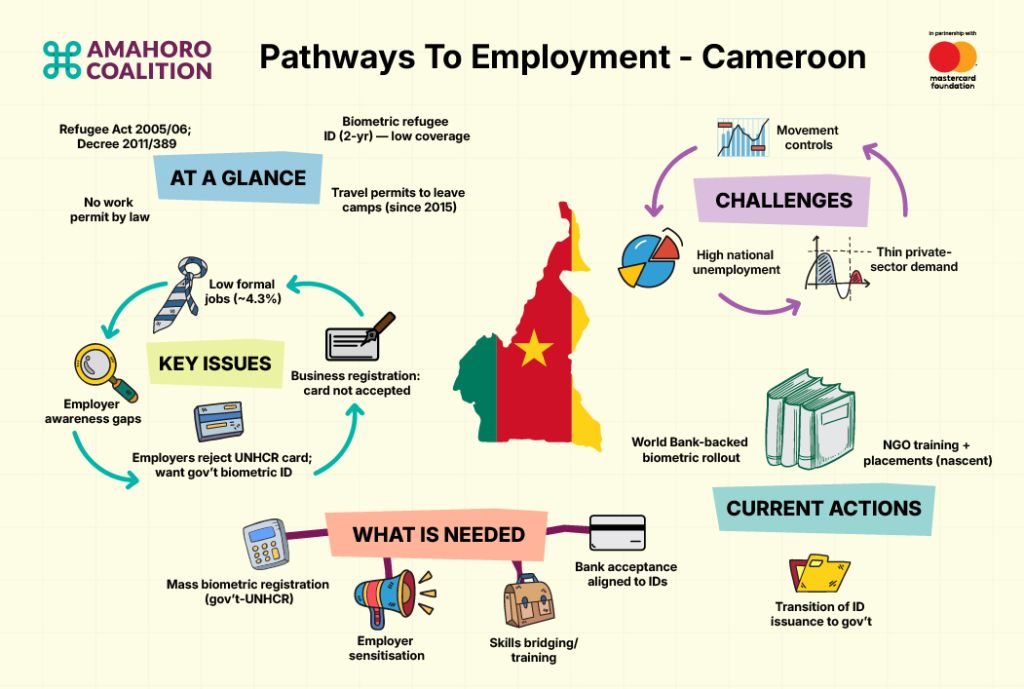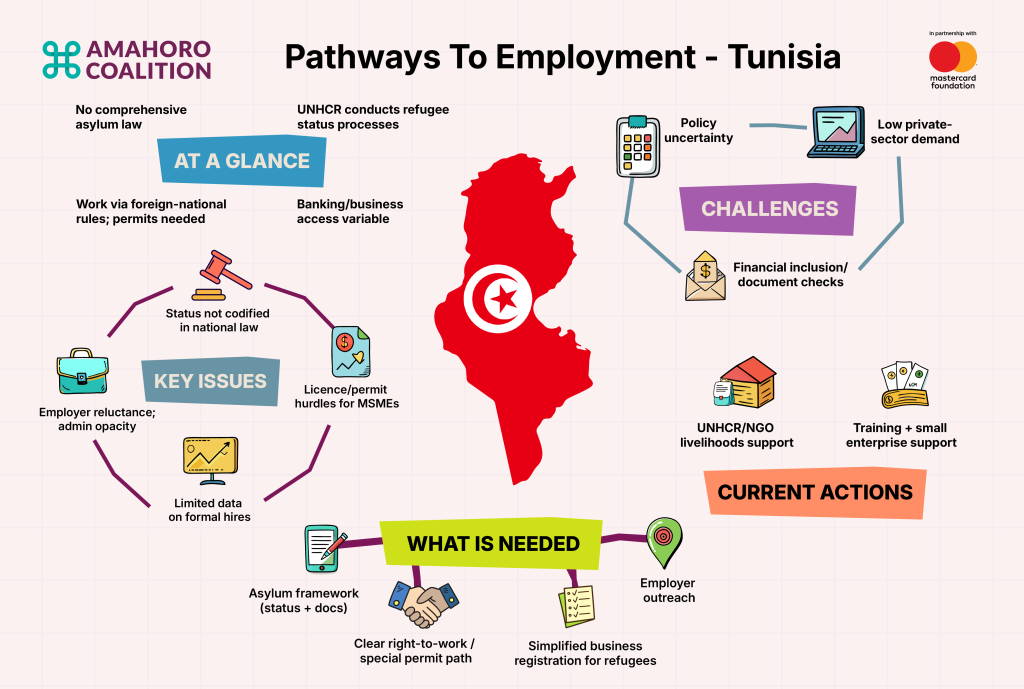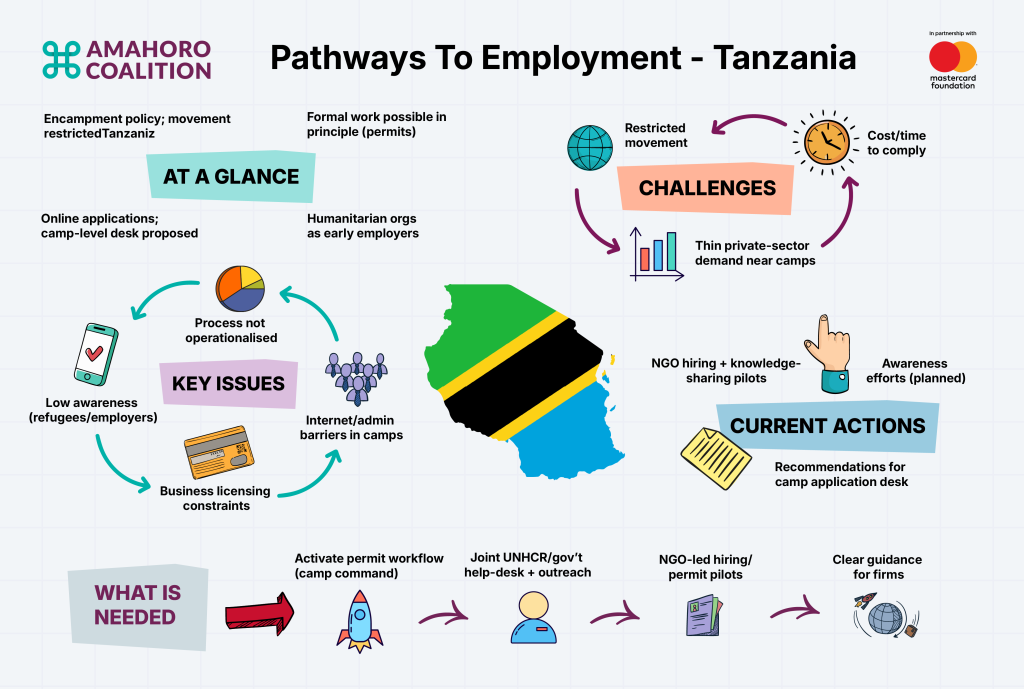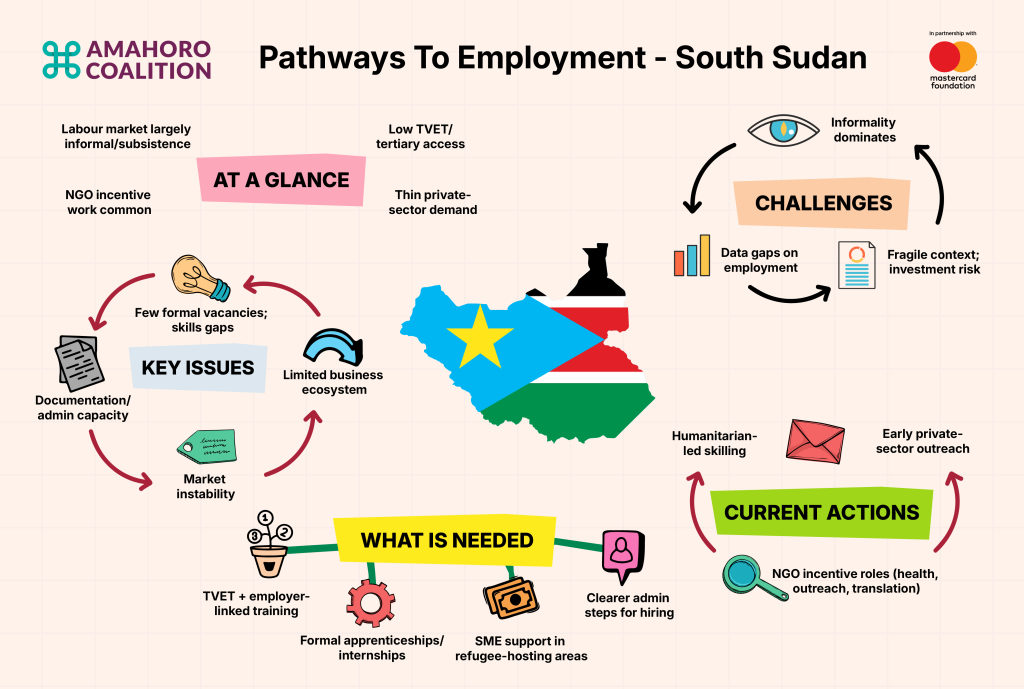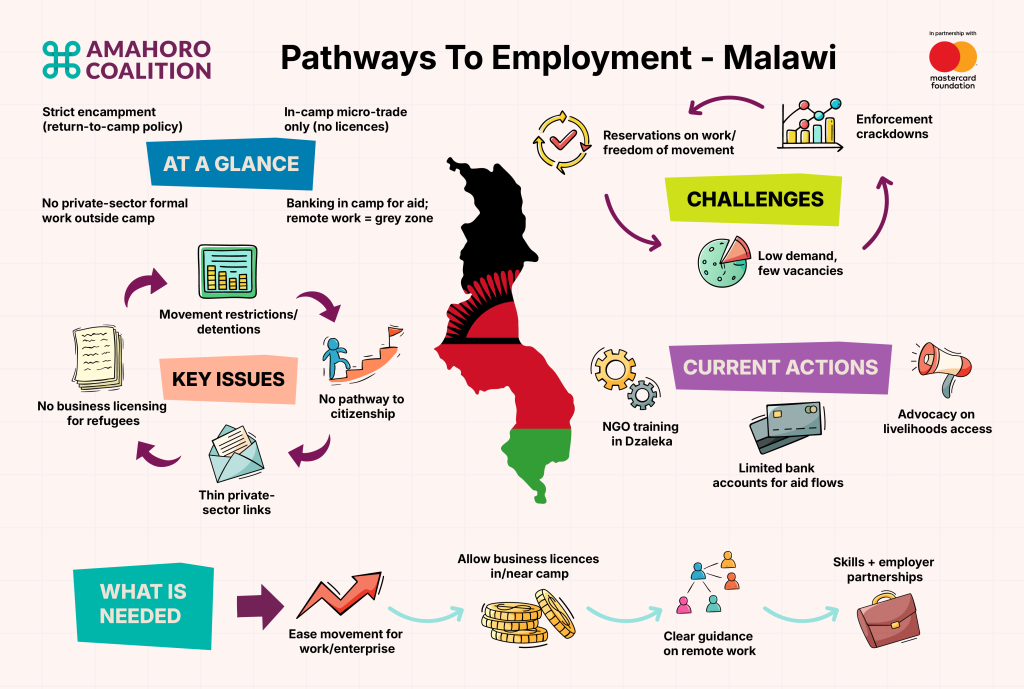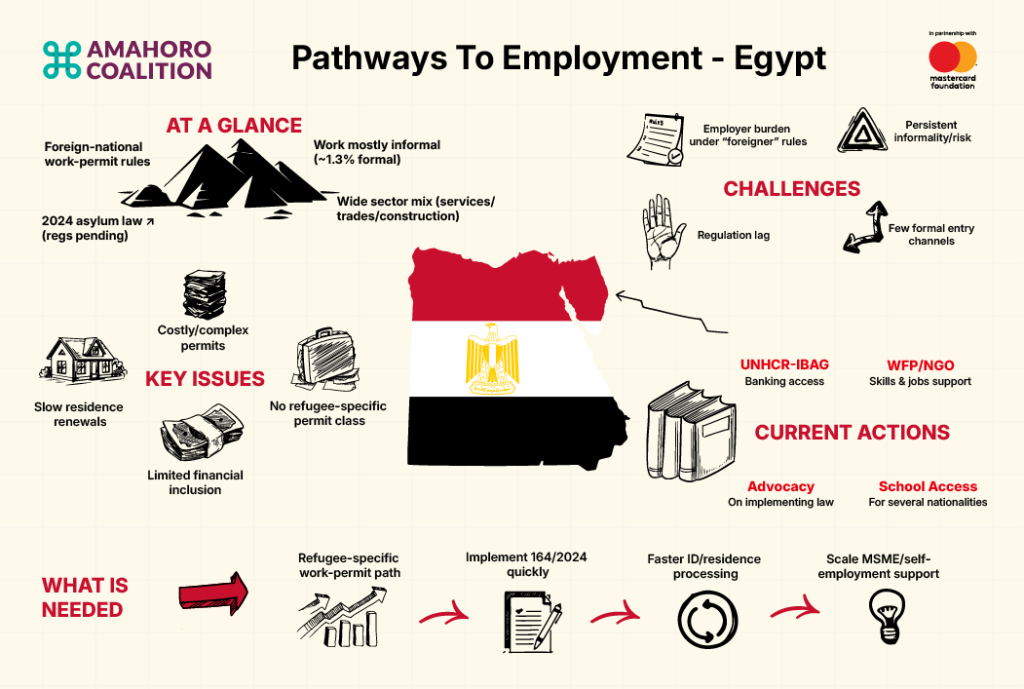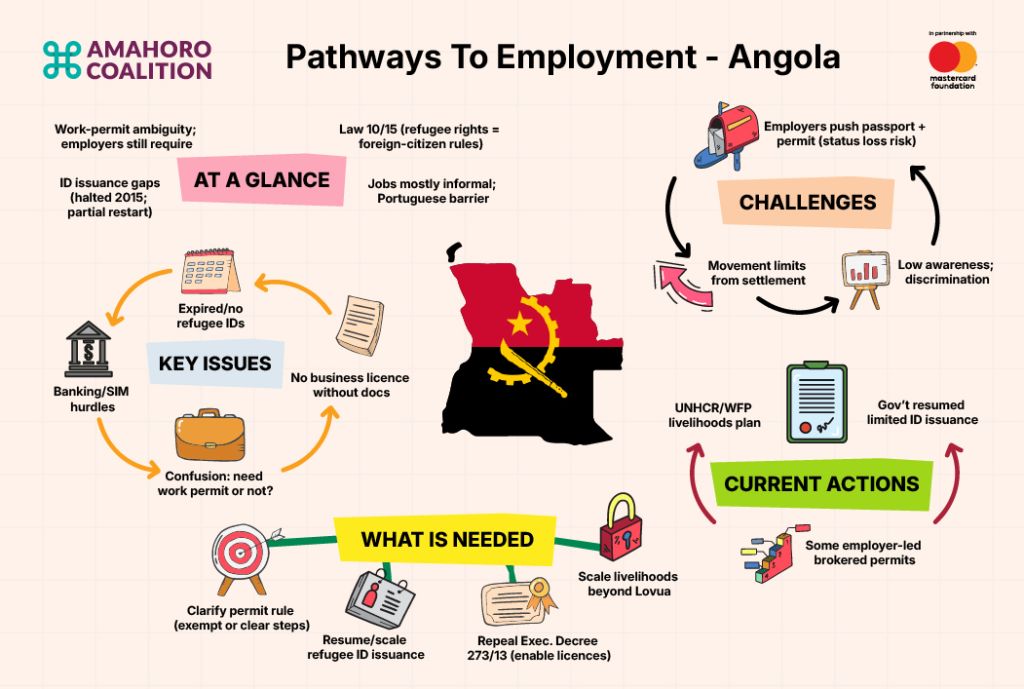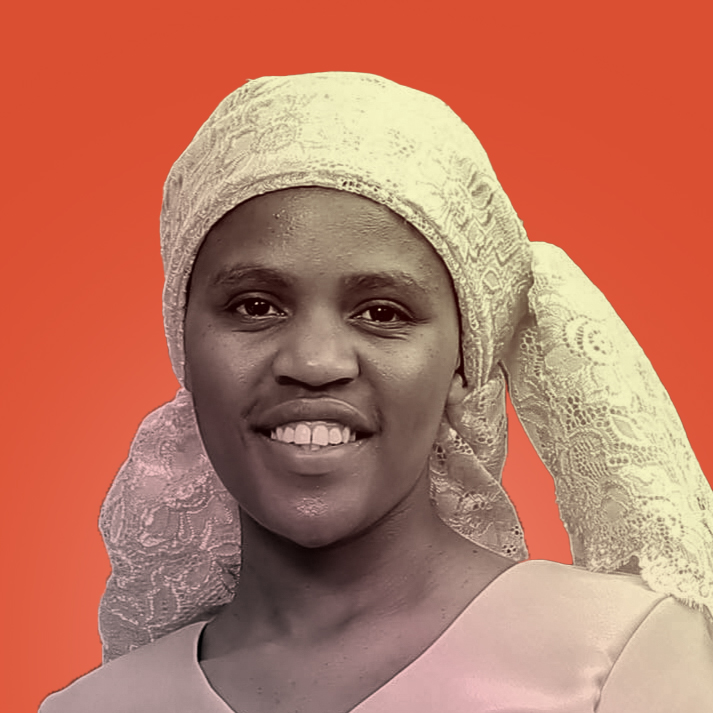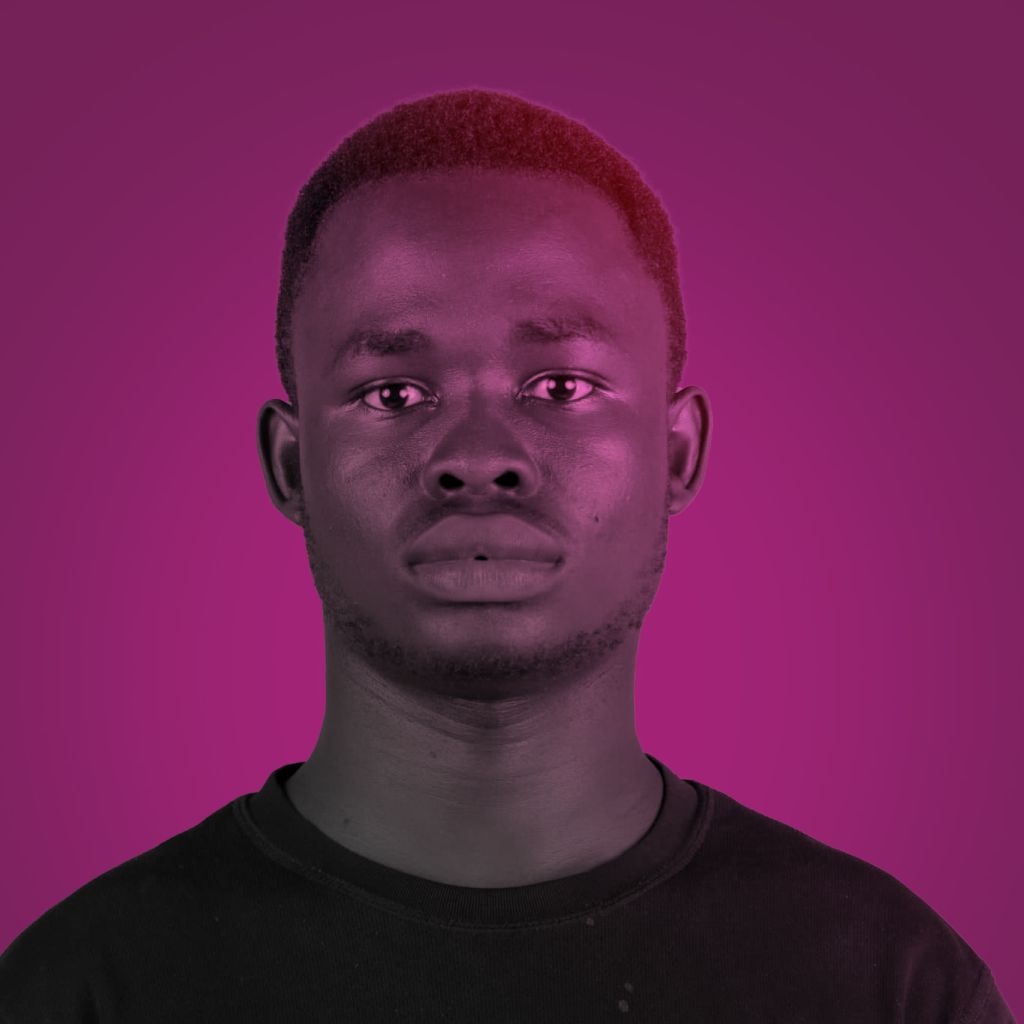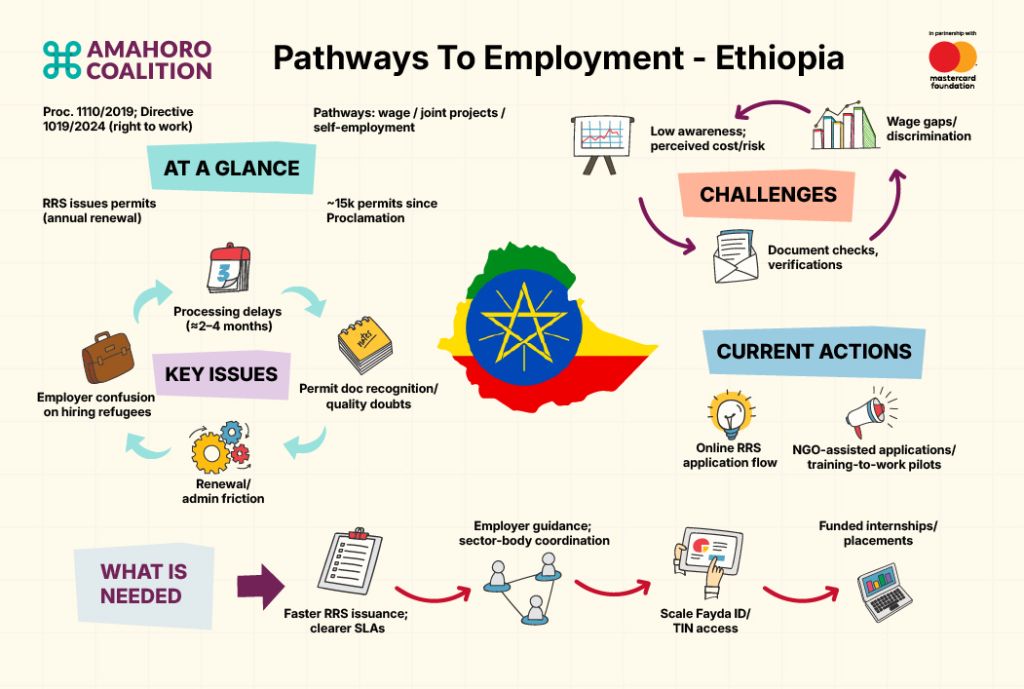
July 19, Abuja, Nigeria – Seven Amahoro Fellows from across West Africa convened for an intensive program designed to strengthen brand building, collaboration, and leadership. Over three days, these entrepreneurs engaged in peer learning, strategic dialogues, and partnership development, catalyzing progress toward their business and social impact goals.
Setting Ambitions
From the outset, each fellow articulated clear objectives for the intensives:
- Tracy Yekaghe prioritized deepening connections and cultivating meaningful collaborations.
- Zang Luka expressed a strategic focus on increasing brand visibility and market presence.
- Grace Borgui emphasized building stronger networks and mastering personal branding to elevate her food venture.
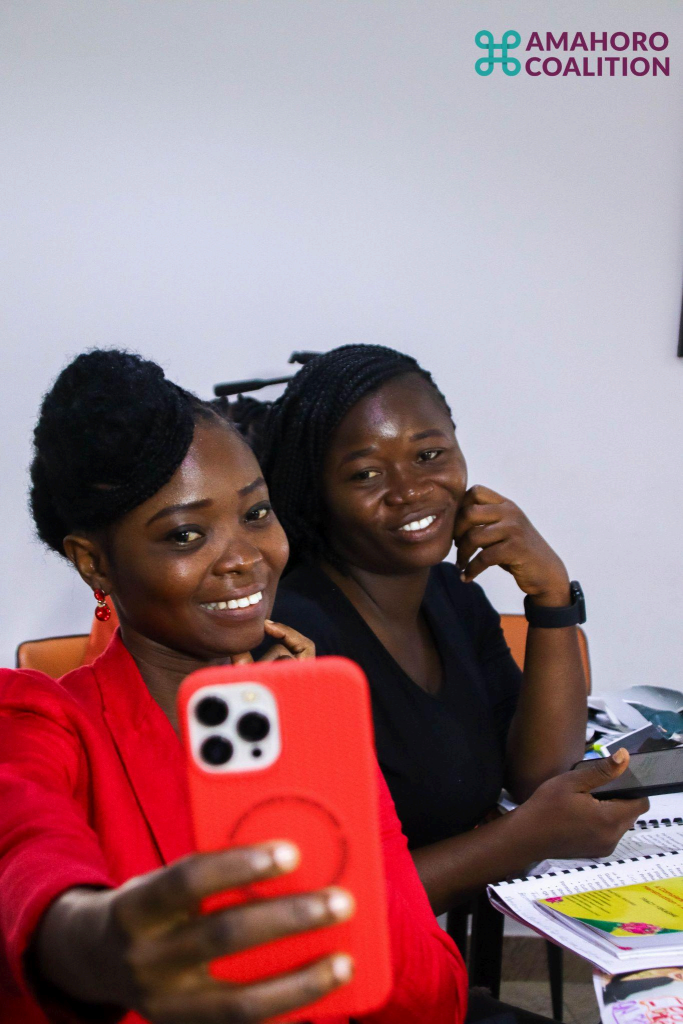
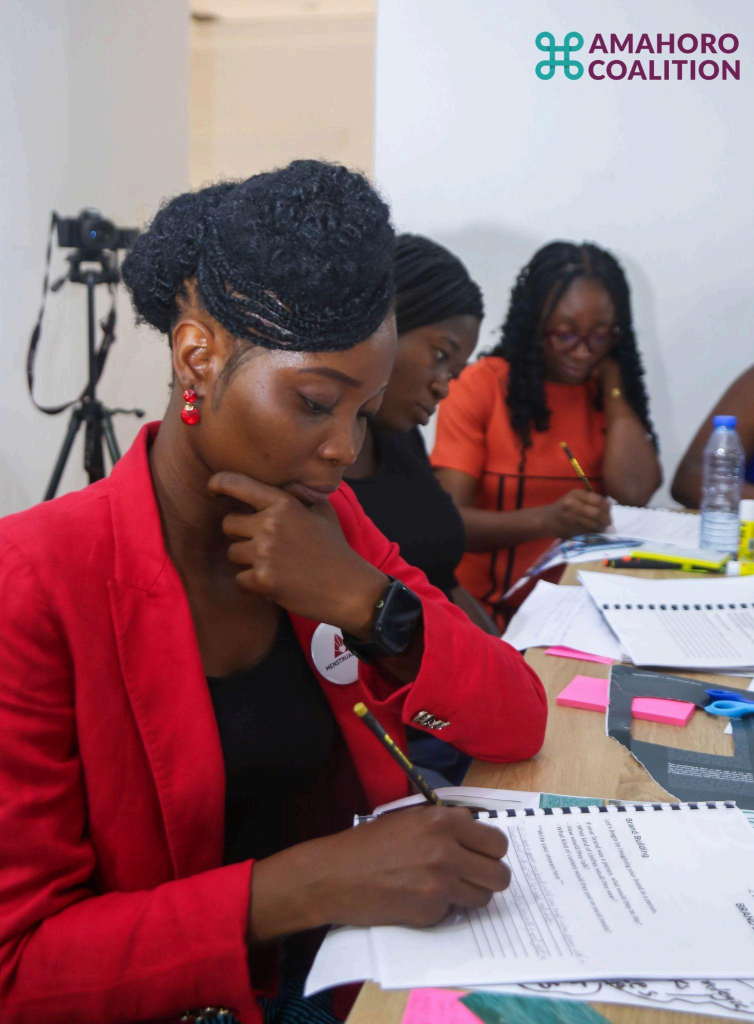
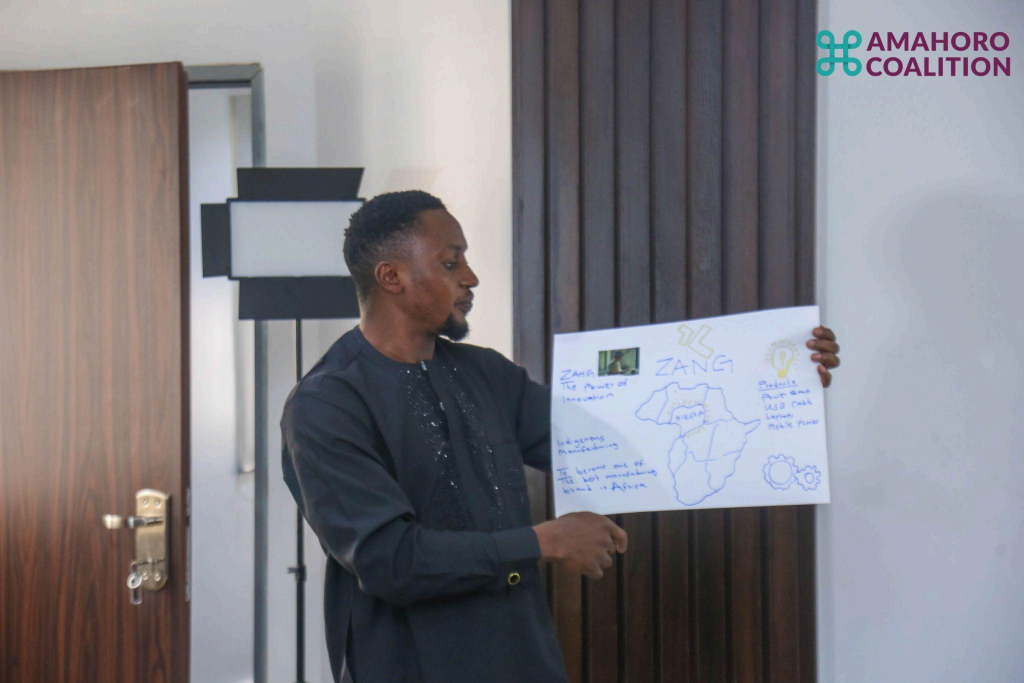
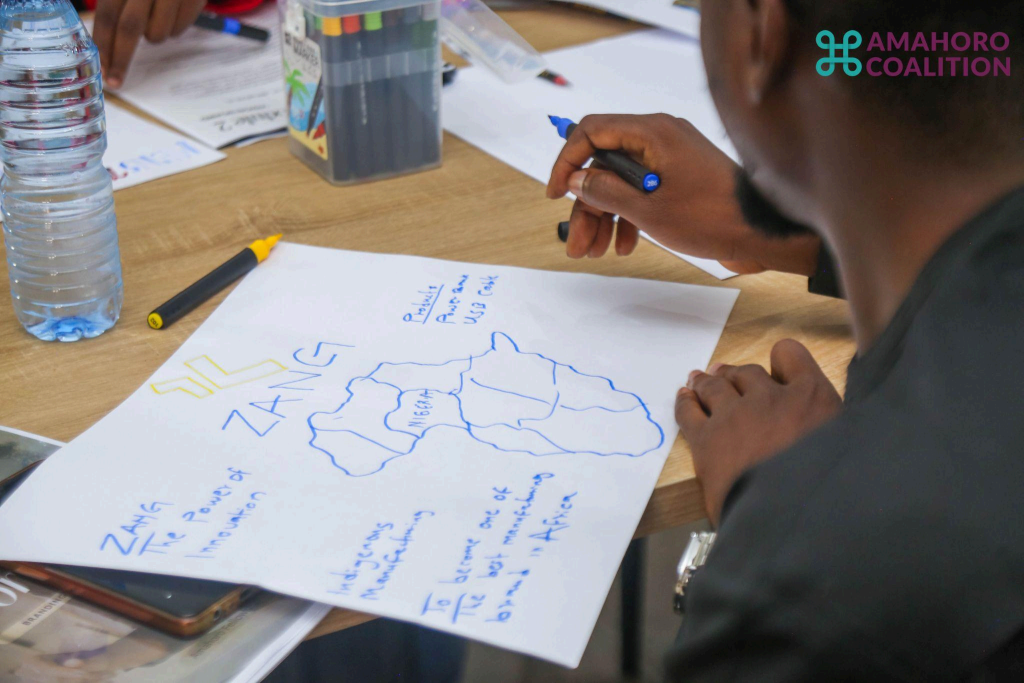
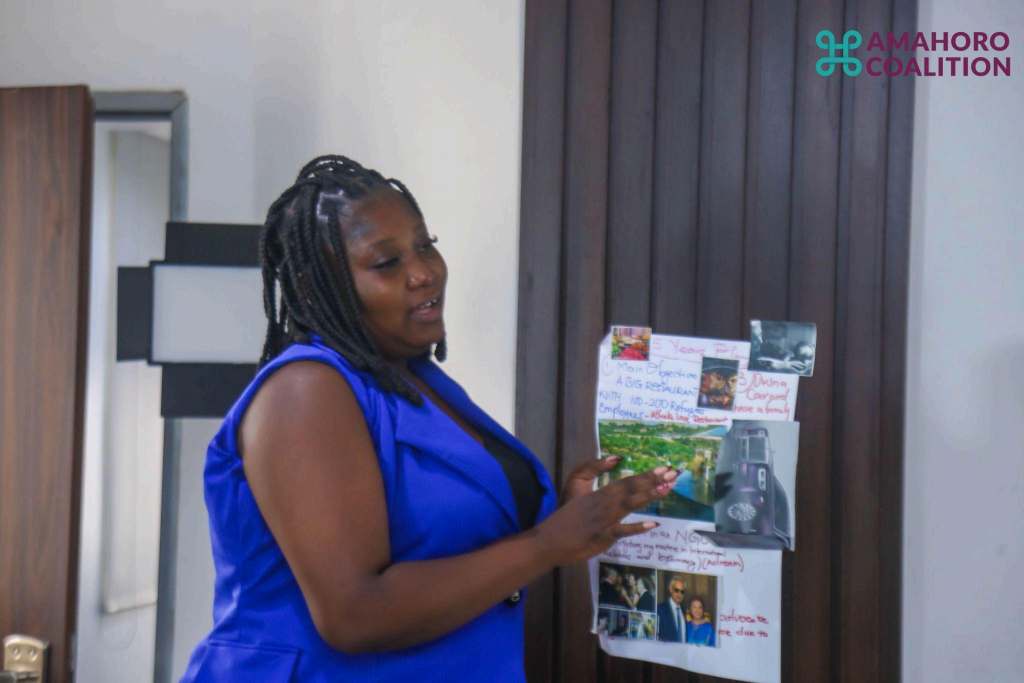
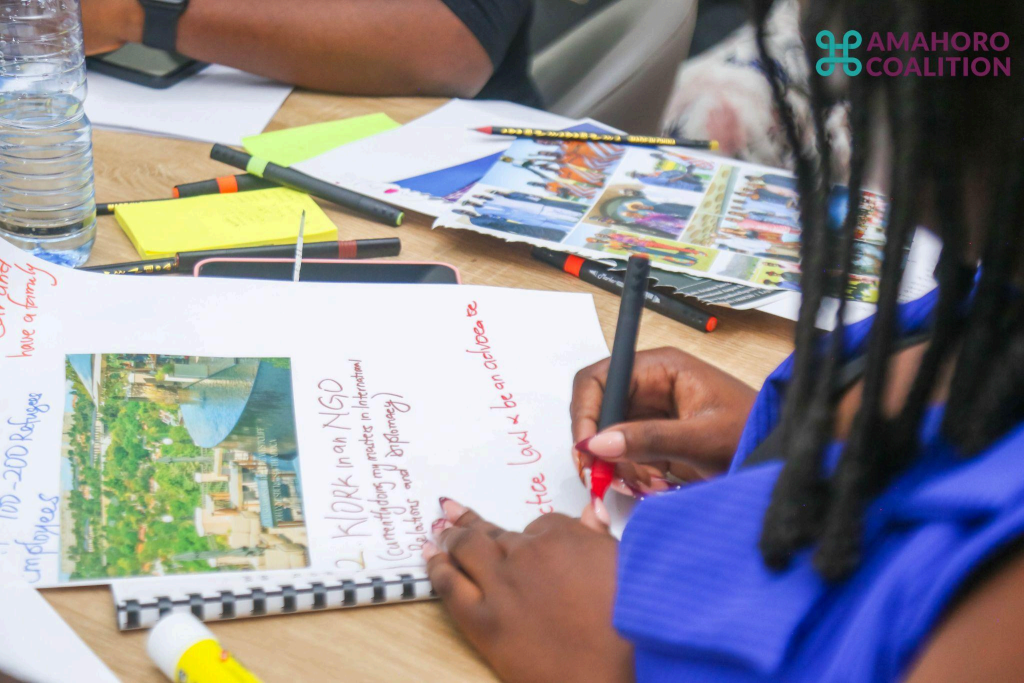
Day One
Building Foundations for Purpose-Driven Brands
The intensive launched with a masterclass by award winning TV presenter Zahirah Marty, who provided a deep dive into both personal and organizational brand development. Through interactive frameworks and hands-on exercises, fellows:
- Developed personalized vision boards to crystallize brand missions and value propositions.
- Identified core goals and mapped out strategic milestones.
- Explored the nuances between “brand origin” (the story of how each venture began) and “brand story” (the ongoing, purpose-driven narrative that connects with diverse audiences).
Fellows immersed themselves in purposeful content creation, aligning every message with their company’s mission. Pitching exercises gave them a real-time opportunity to test and sharpen the way they promote themselves and their business ideas.
“The session helped me see how much of my brand story I’ve never told,” said Grace Bogui. “It made me realize that clarity in storytelling isn’t just about marketing—it’s about leadership.”
“As a result of this branding workshop, I’ve already drafted 30 days’ worth of social media posts for my business,” shared Agwu Kalu Ibe, reflecting on the immediate, practical impact of the session.
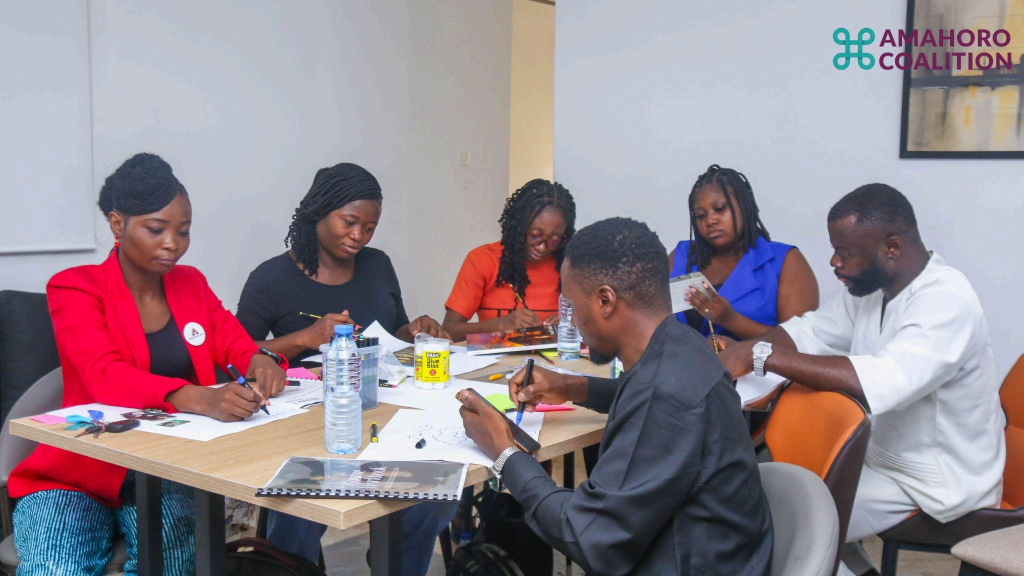
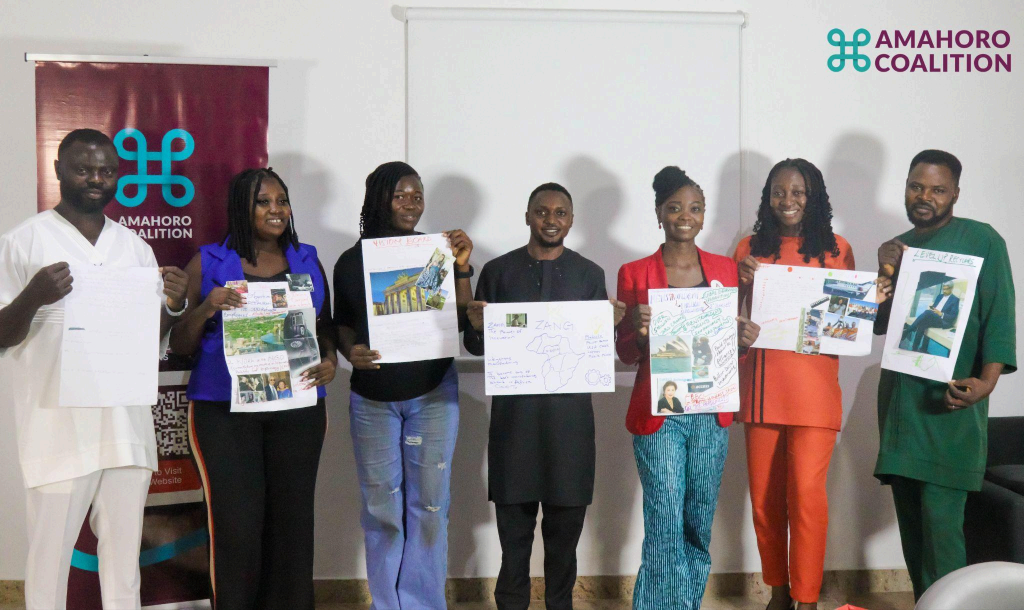
From left – Ayuk Peterkings, Grace Borgui, Grace George , Zang Luka, Tracy Yekaghe, Louange Kofi and Agwu Ibe Kalu.
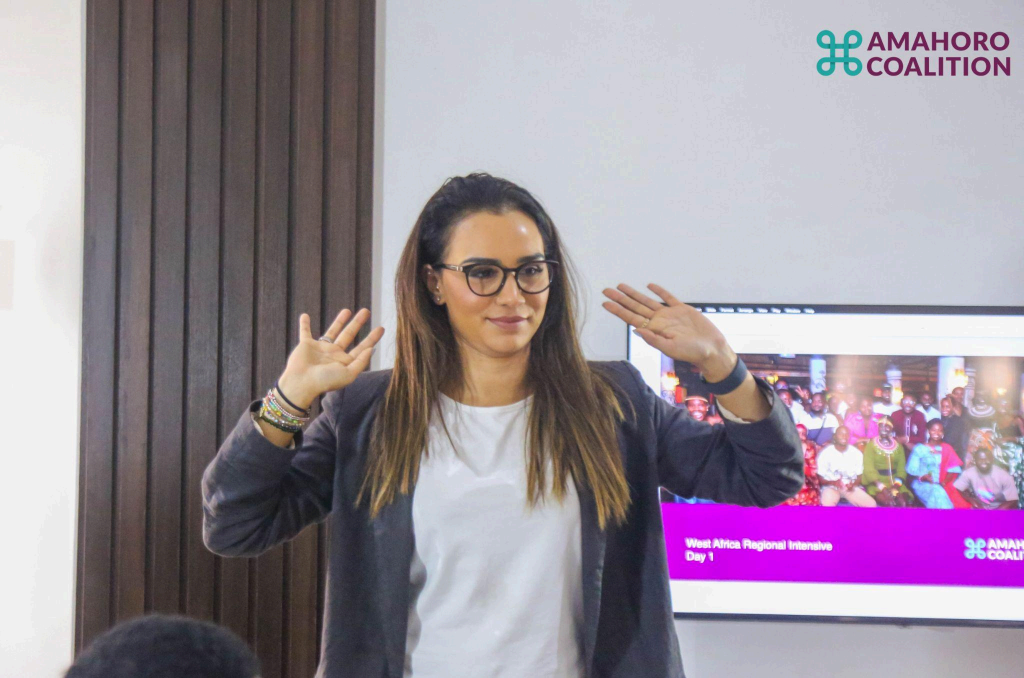
Zahirah Marty
Day Two
Learning to Lead in the Kitchen
Shifting from the classroom to the kitchen, Day Two challenged the fellows to apply leadership in a new context. Divided into teams, the young leaders were tasked with preparing a meal—from shopping in the market with set instructions to cooking under tight time constraints and limited resources.
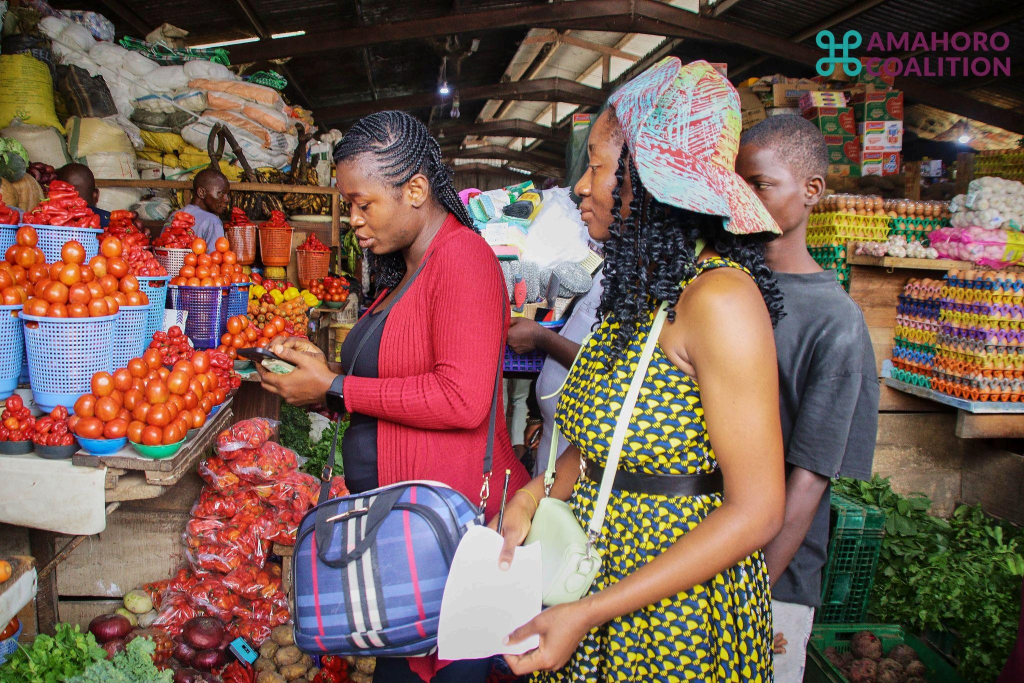
Fellows Louange and Grace George at the market in Abuja
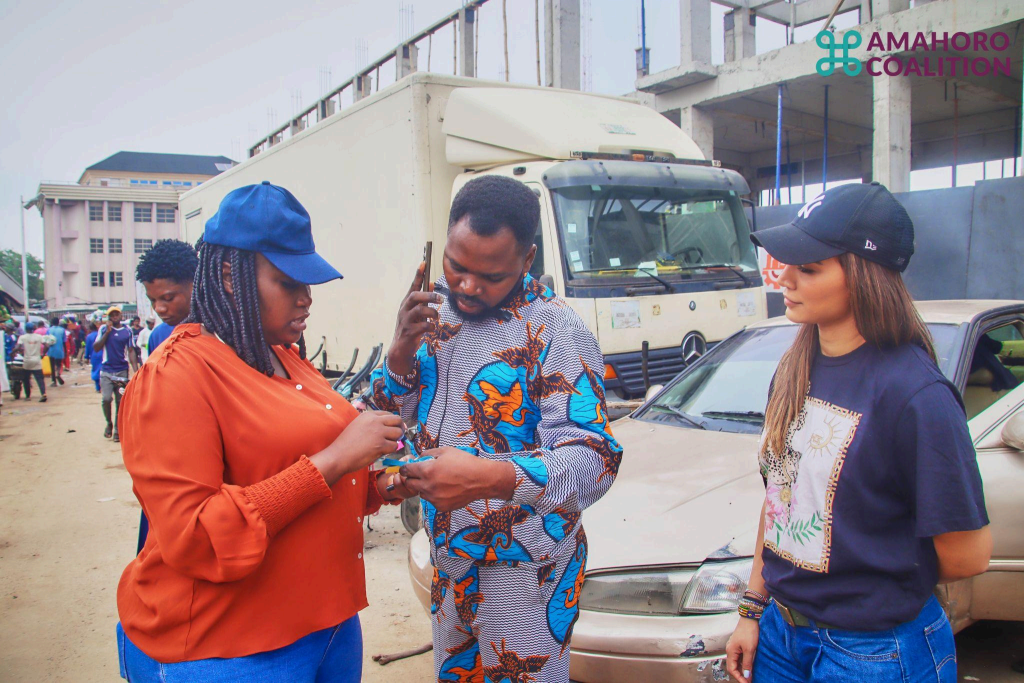
Team ‘Just Try’ in Action — Grace Borgui and Ibe Kalu strategize their market buys as Zahirah Marty observes their teamwork
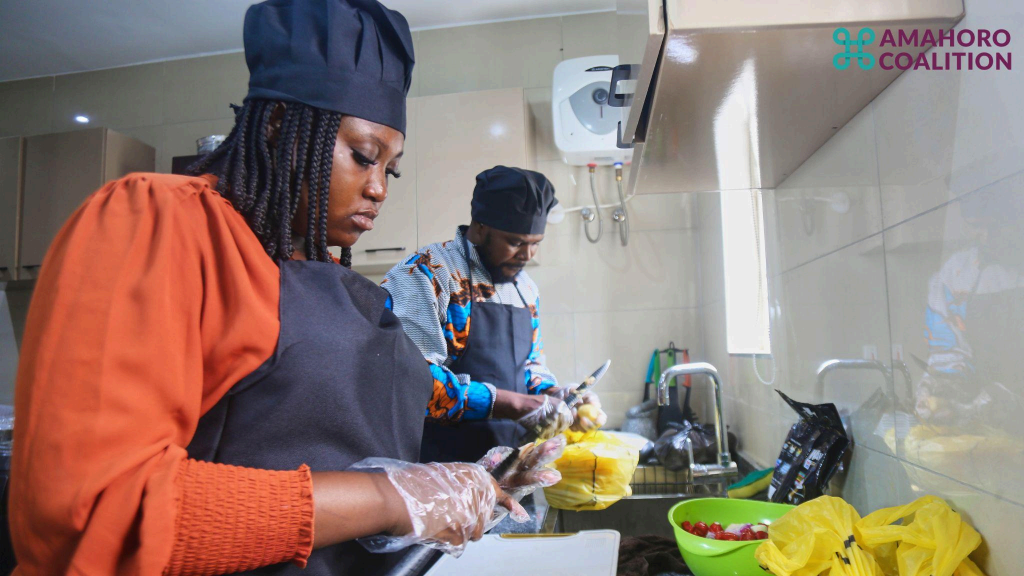
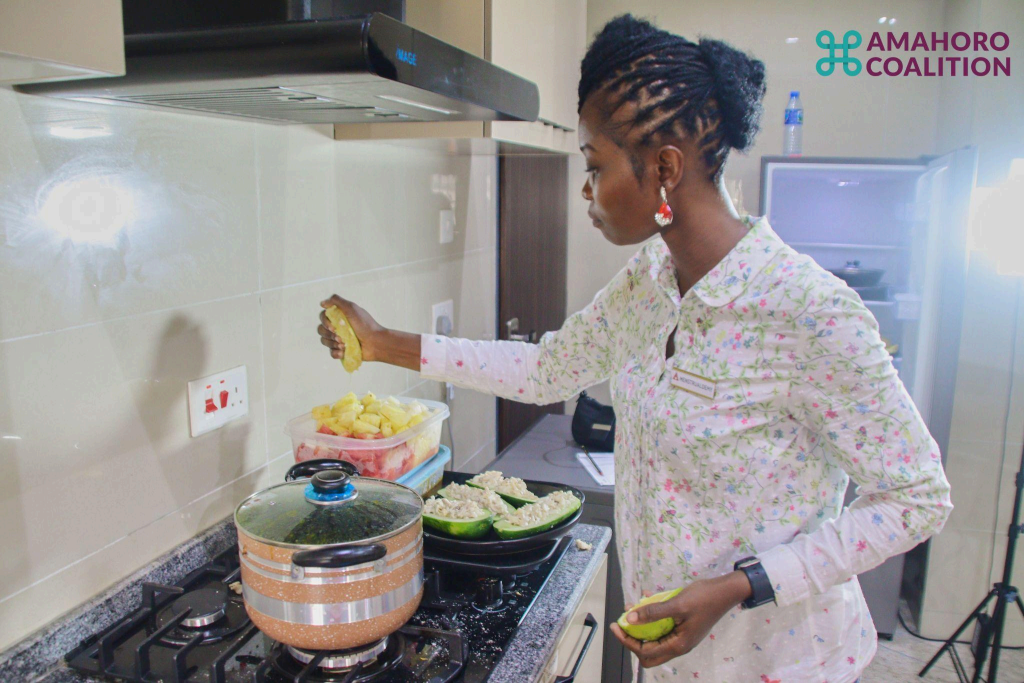
Tracy Yekaghe finishing a fruit salad
The cooking challenge served as a metaphor for entrepreneurial leadership. It brought forward lessons in:
- Team dynamics and role delegation
- Communicating under pressure
- Agility in the face of setbacks
“When we ran out of water, we had to think fast and pivot our entire cooking approach,” said Louange Kofi. “That flexibility is exactly what running a business often demands.”
Ayuk Peterkings reflected on the importance of clarity and respect: “The best outcomes came when everyone’s input was valued and roles were clearly defined.”
“My partner in the exercise is a professional cook, so I stepped back and let her take the lead on what we’d cook and what to buy at the market,” reflected Agwu Kalu Ibe. “Eventhough I’m Nigerian, she negotiated prices better than I could, which taught me the importance of trusting others’ expertise and knowing when to lead and when to follow. It’s a lesson I’ll carry into the workplace.”
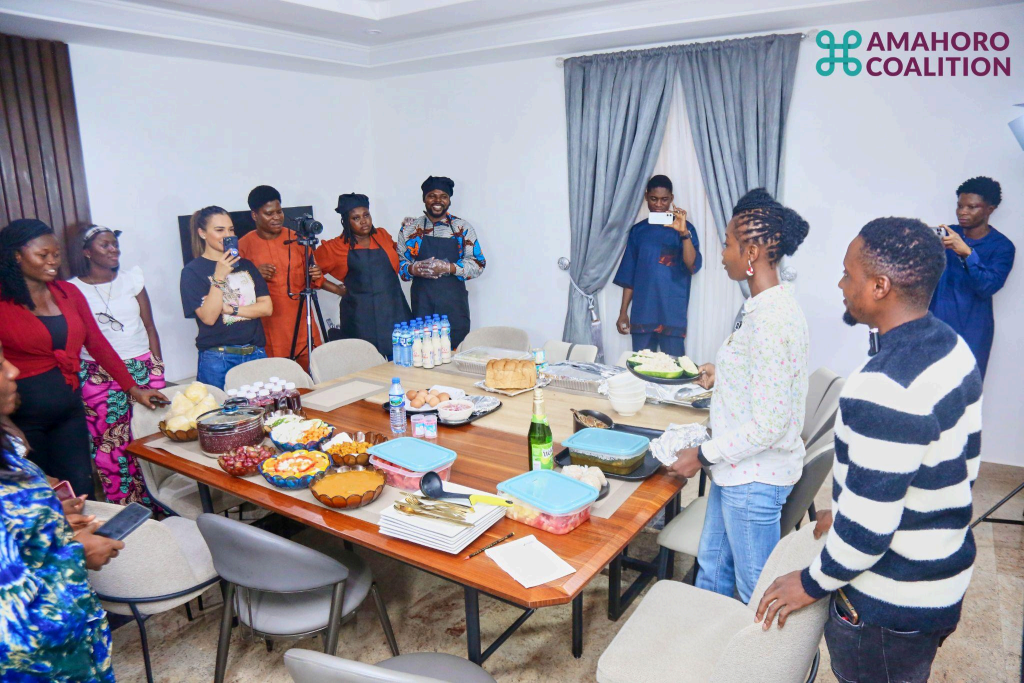
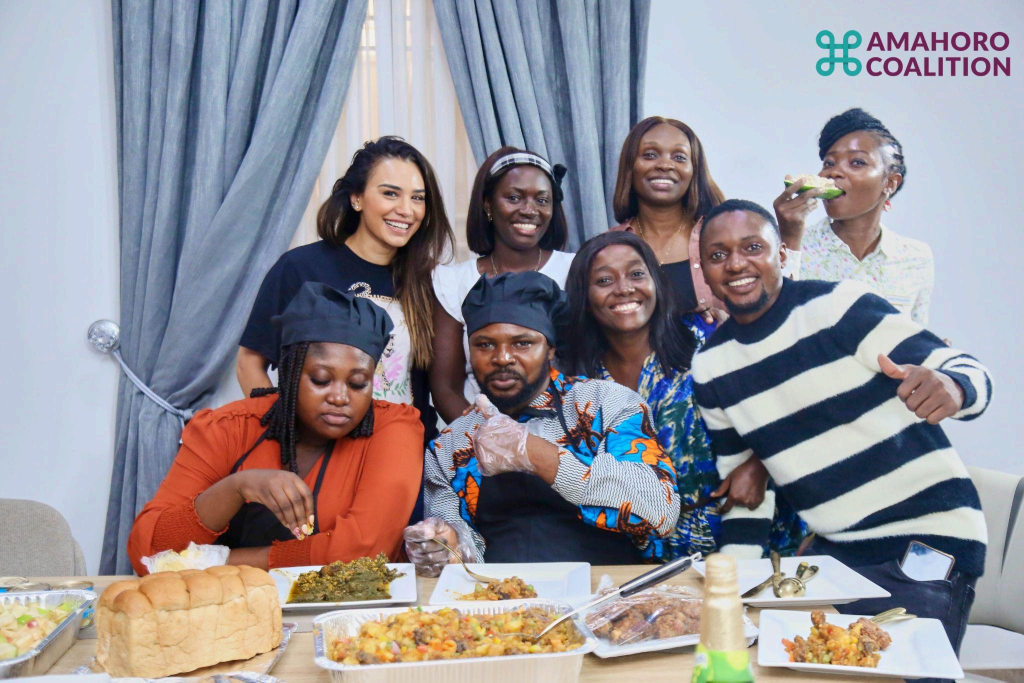
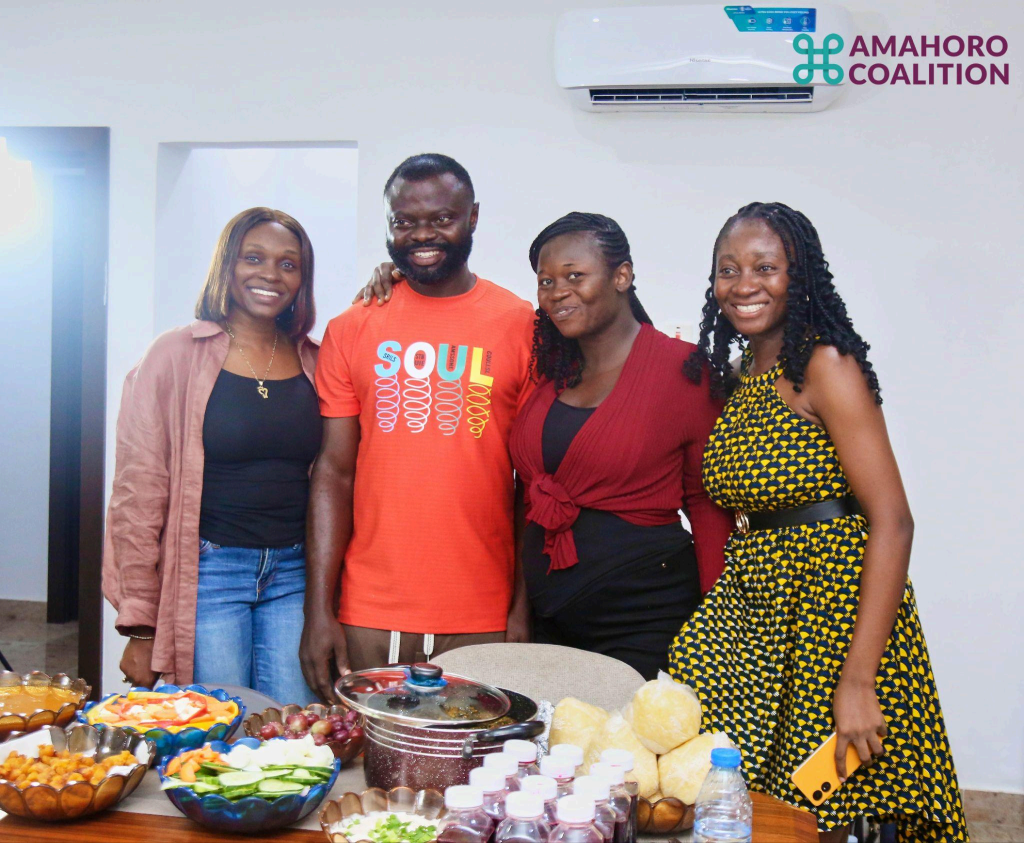
From left – Hilda, Ayuk, Grace and Louange
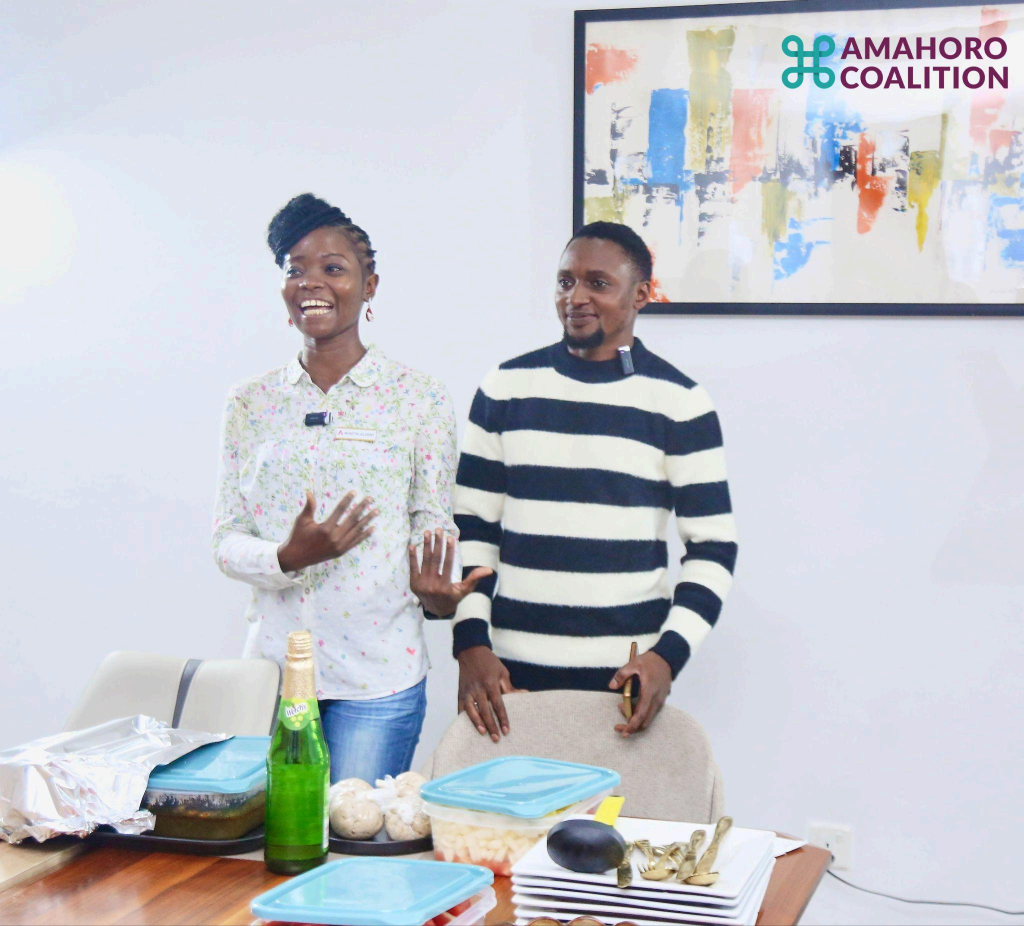
Day Three
Reflection
The final day invited careful reflection. Fellows reviewed the week’s lessons, candidly shared breakthrough moments, and refined their business and leadership approaches. “The Intensive gave me both clarity and confidence,” said Zang Luka. “I now understand exactly what steps to take next—not just in growing my business, but in leading it with purpose.”
The West Africa Regional Intensive underscores the Amahoro Fellowship’s commitment to building not just enterprises, but ecosystems of leaders equipped with the tools to drive change. The experience has seeded a deeper sense of community, mutual accountability, and collective ambition across borders.
